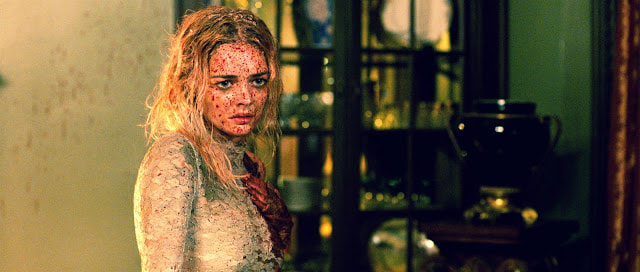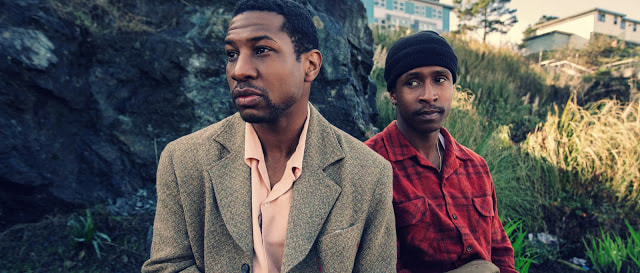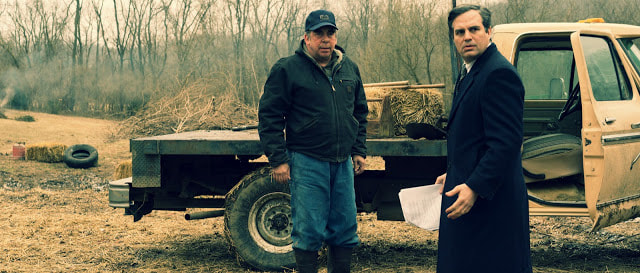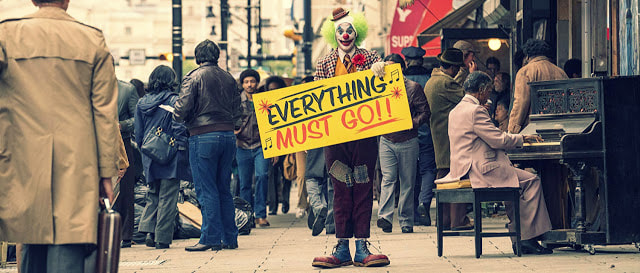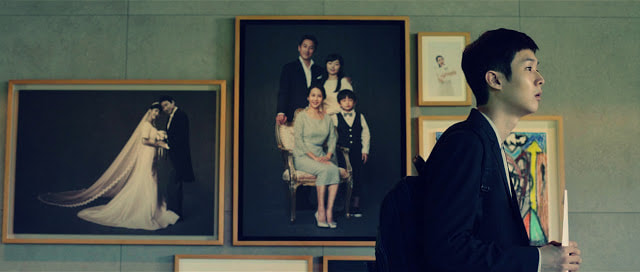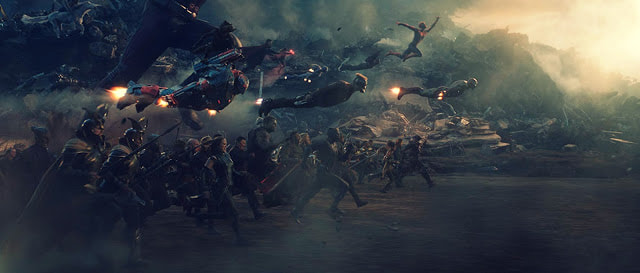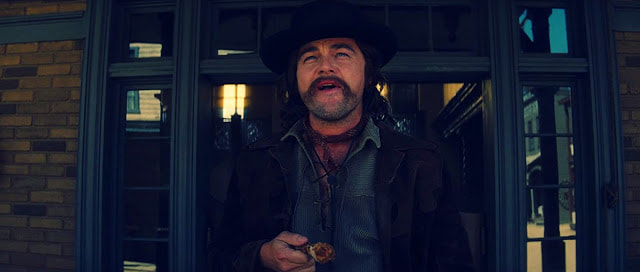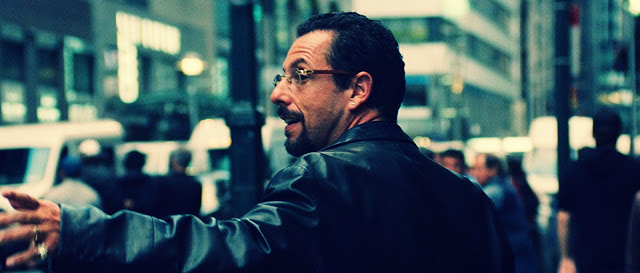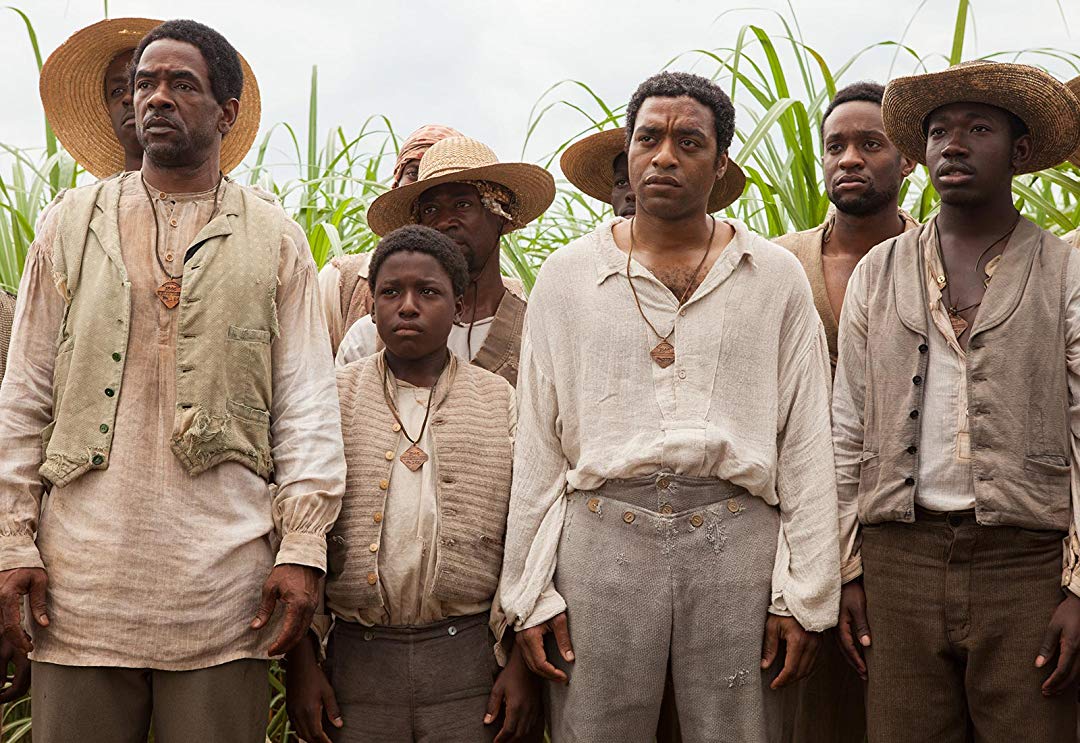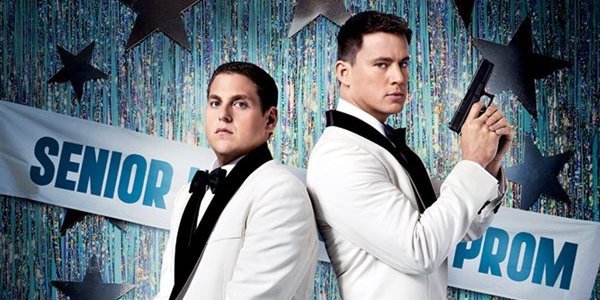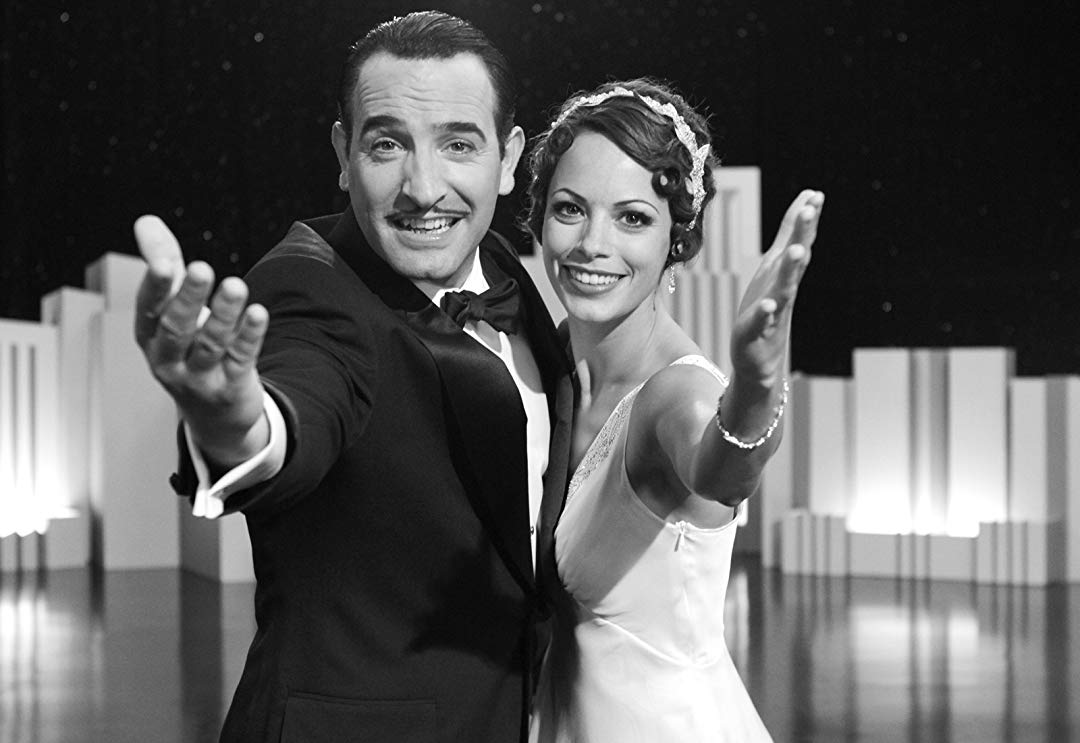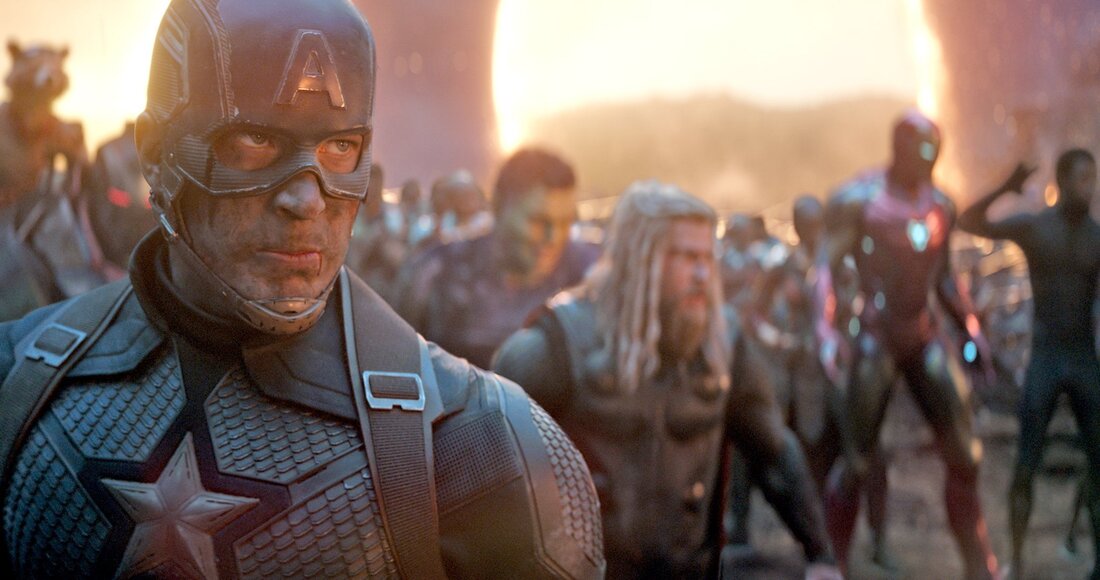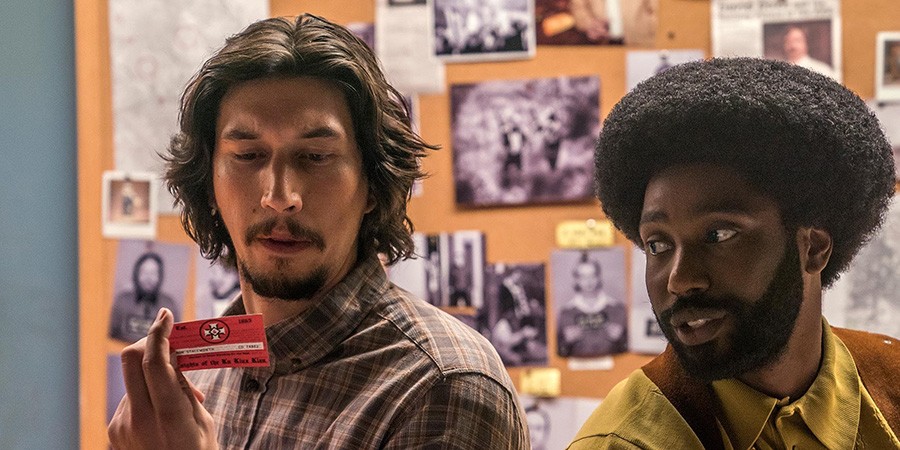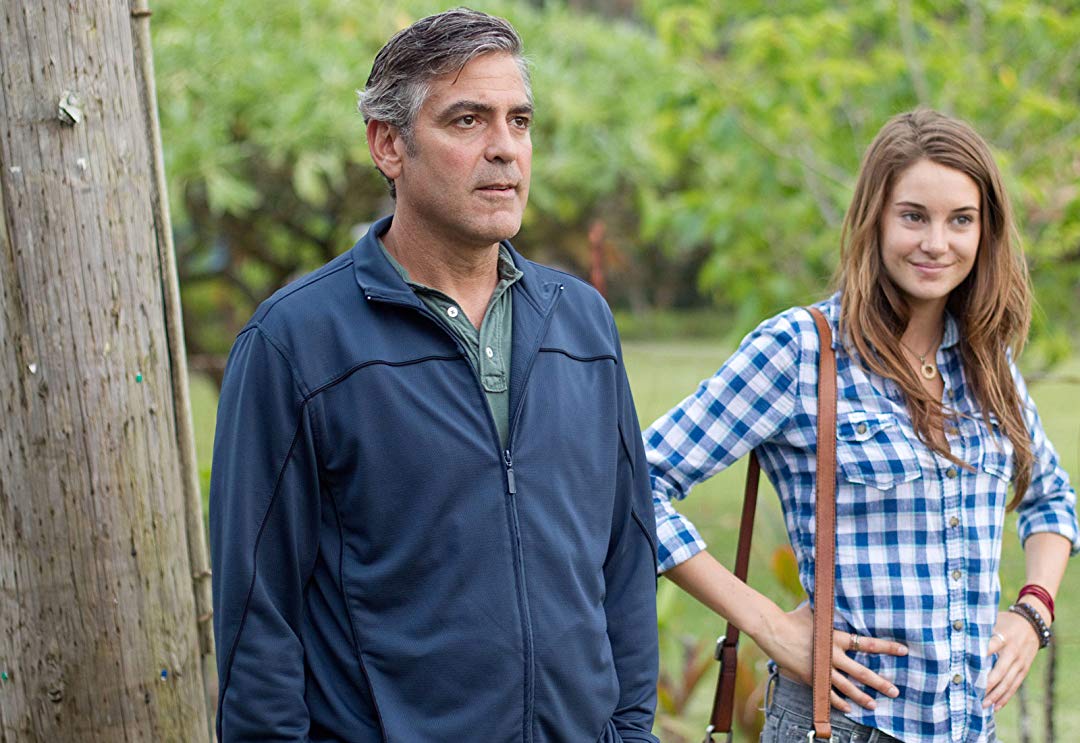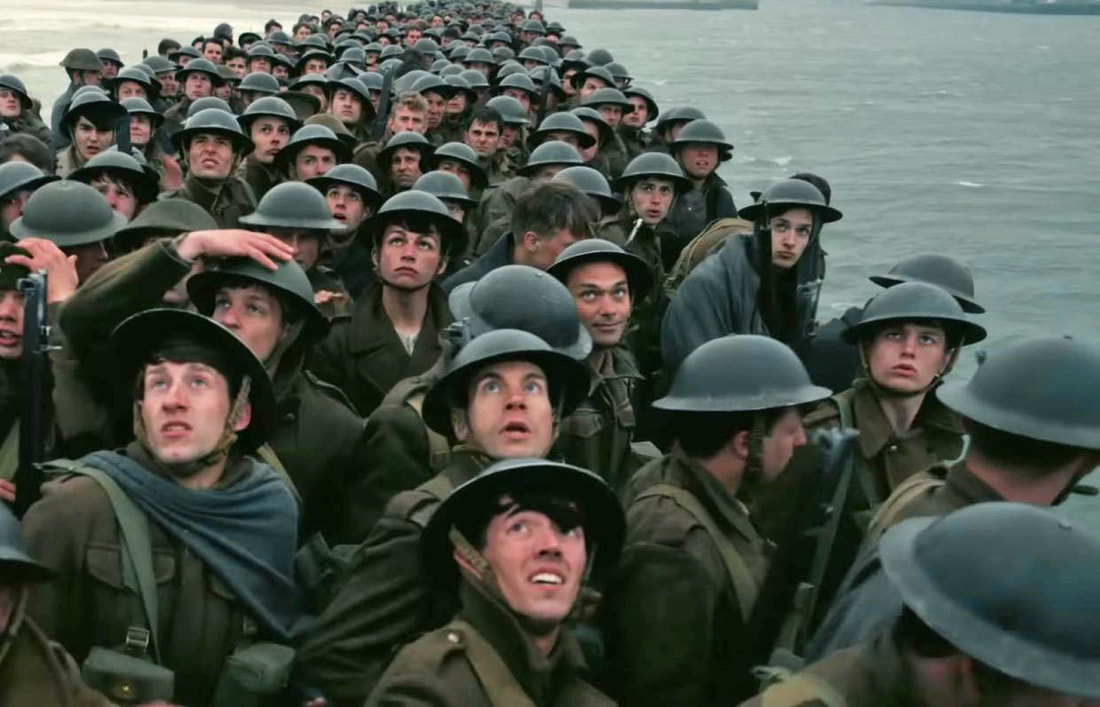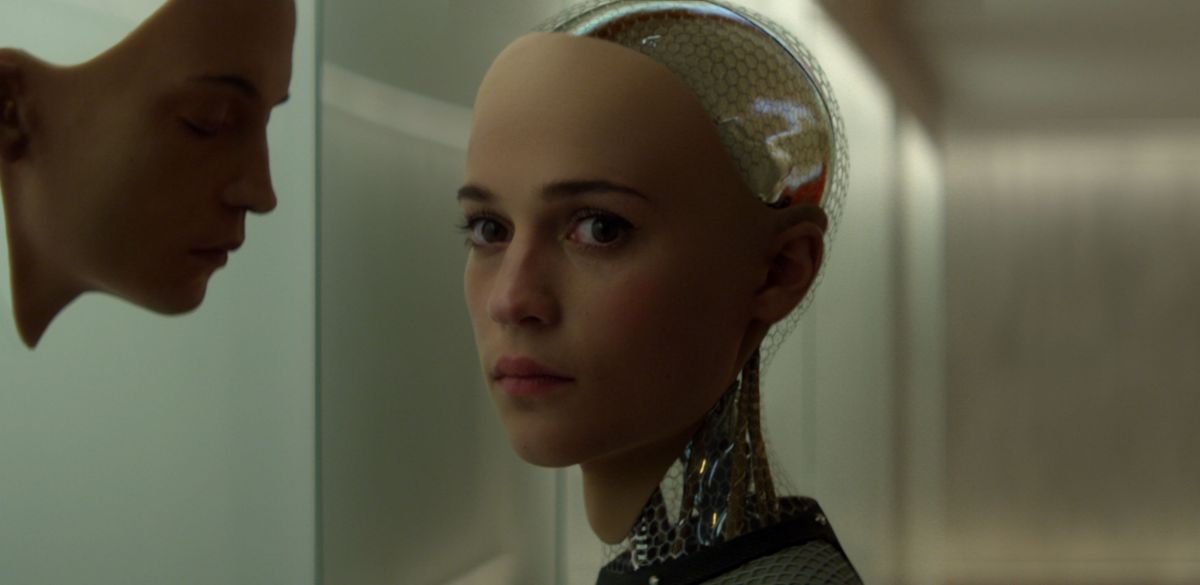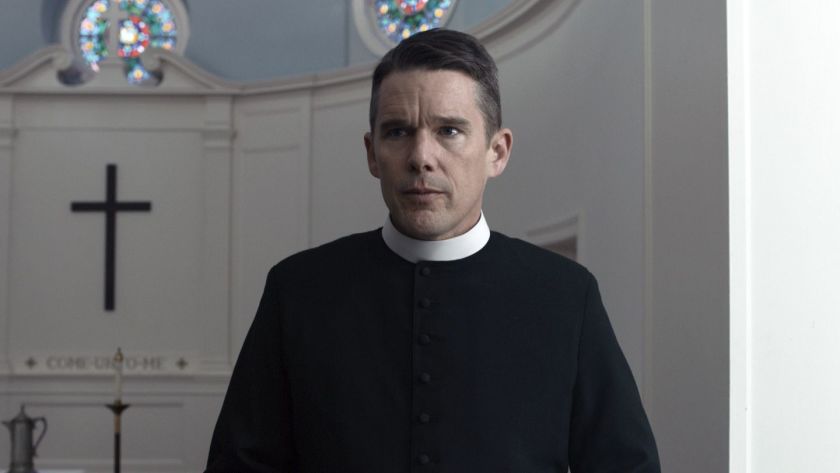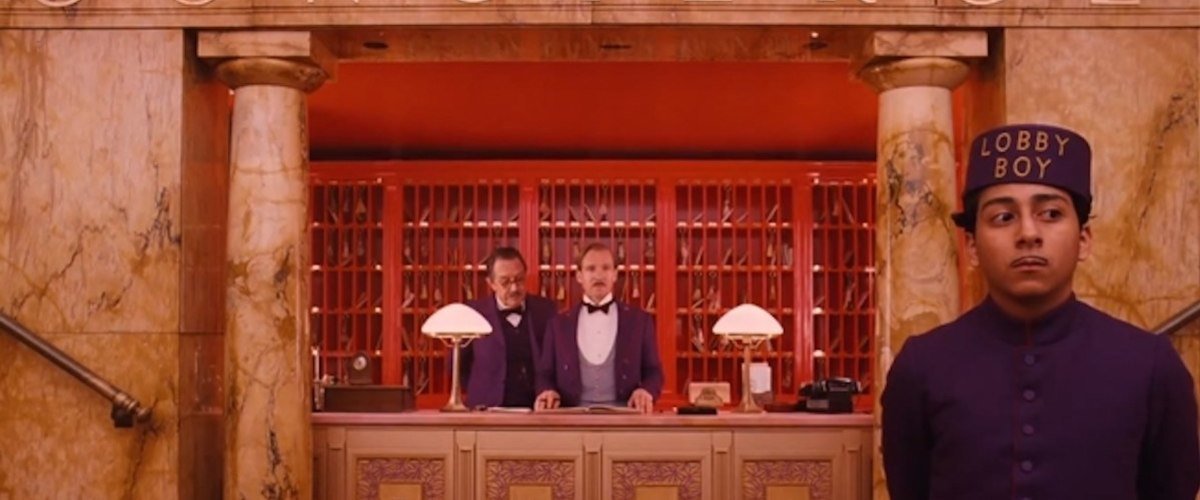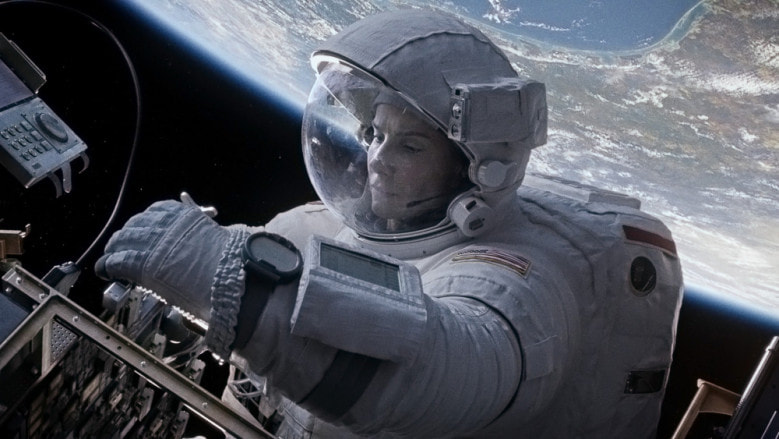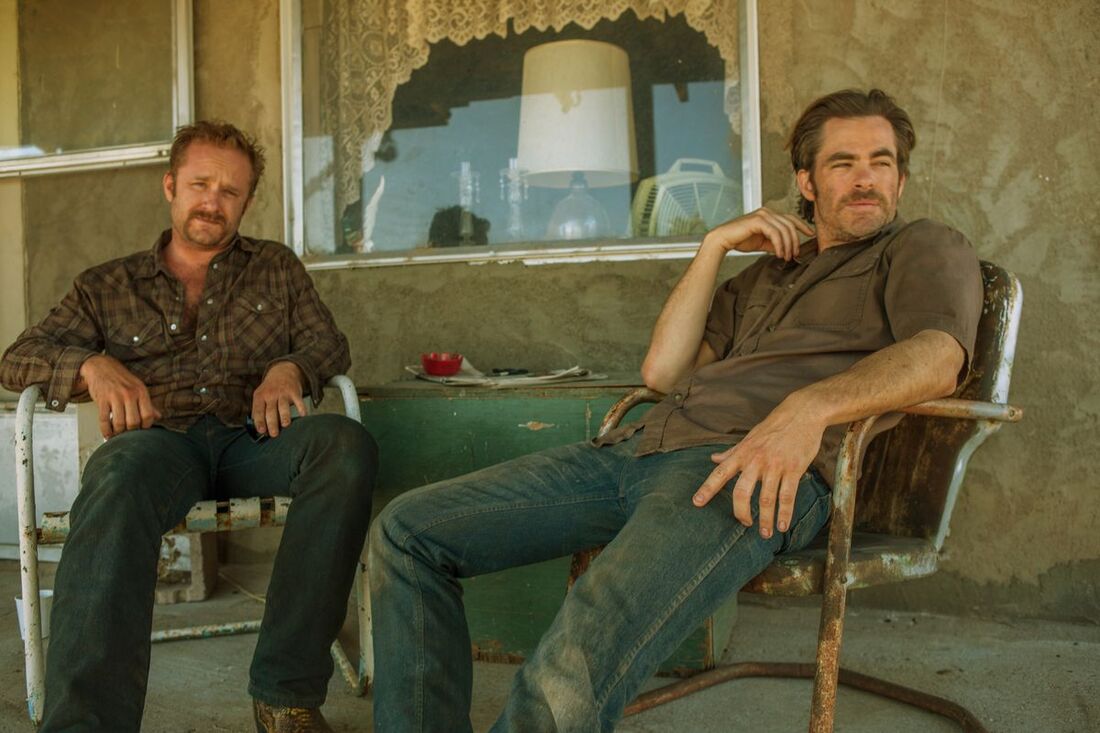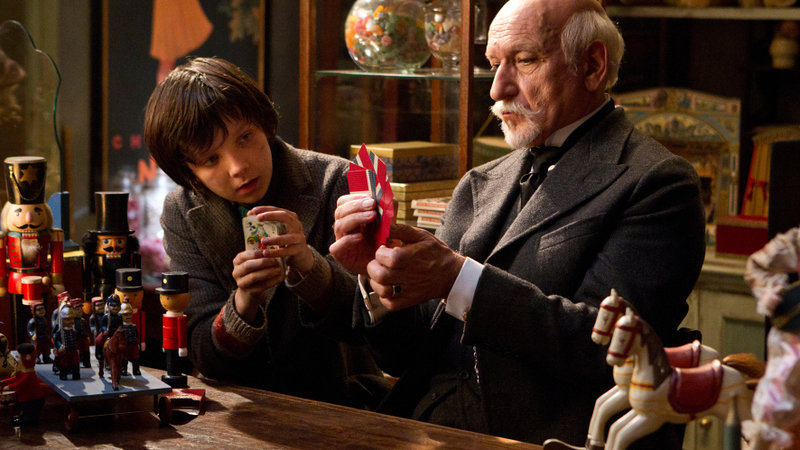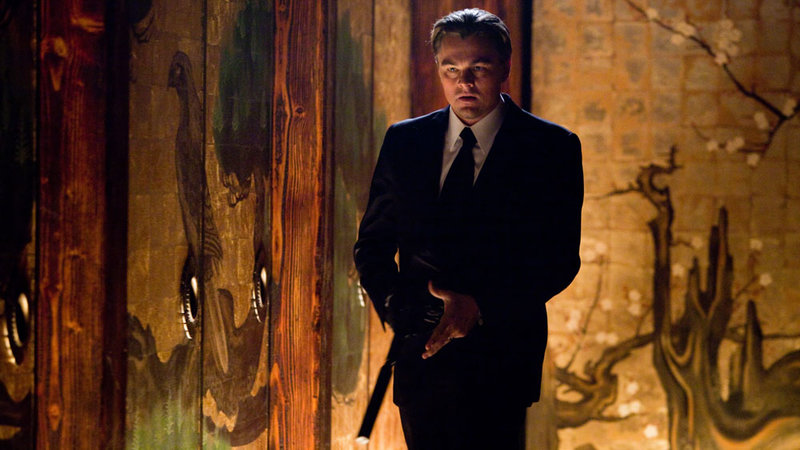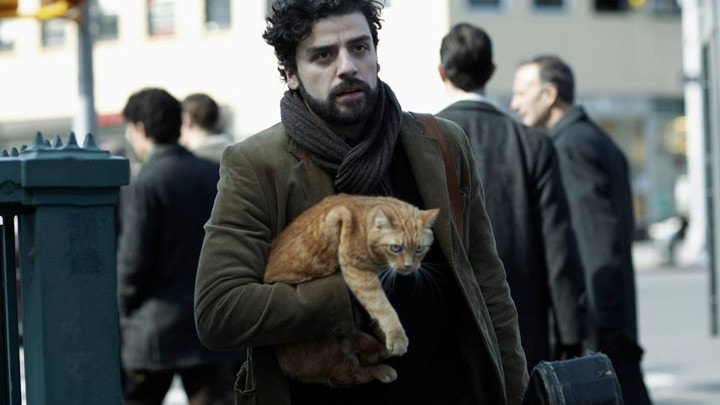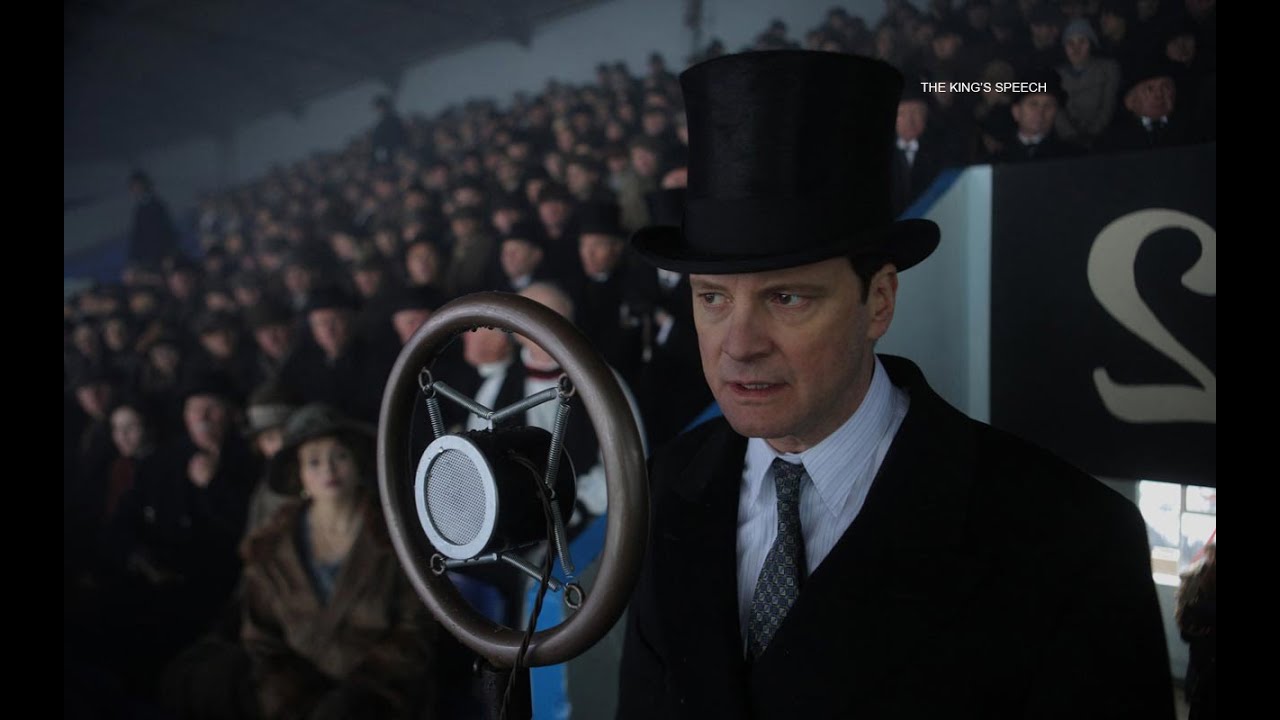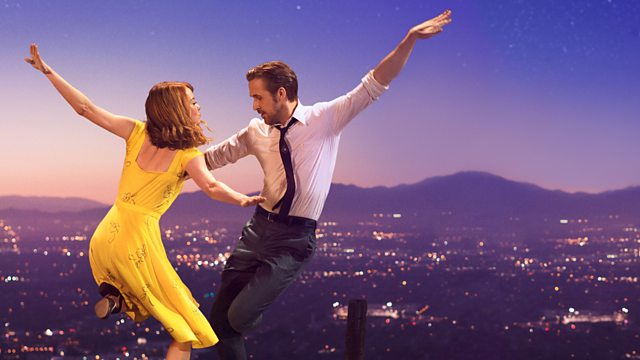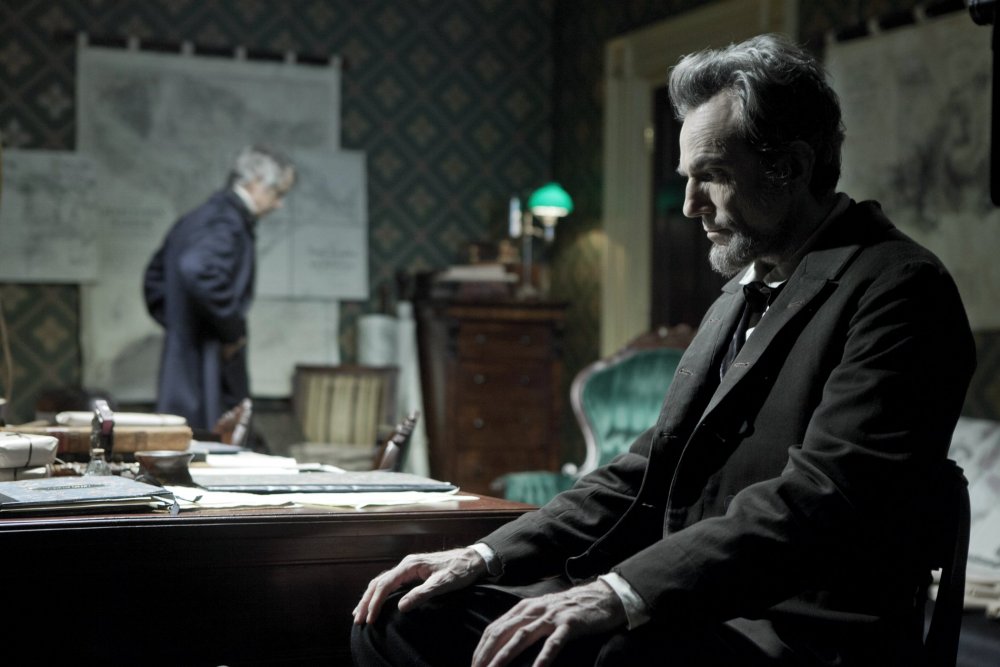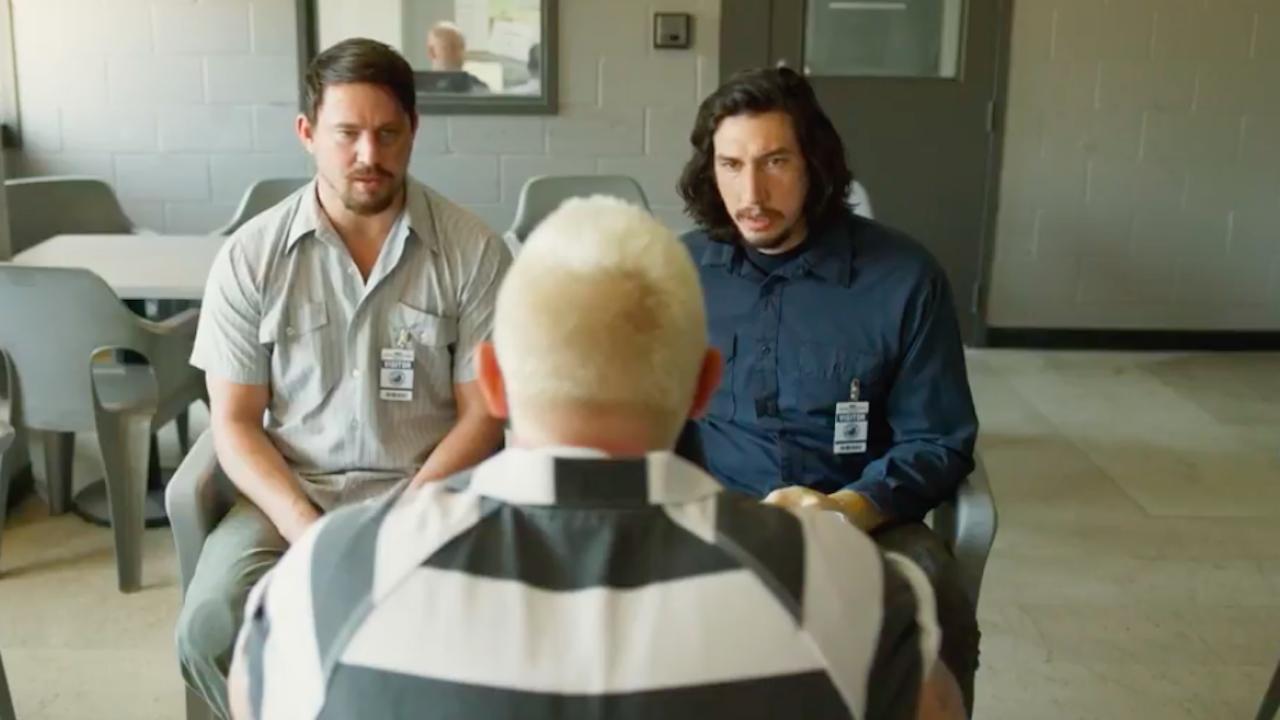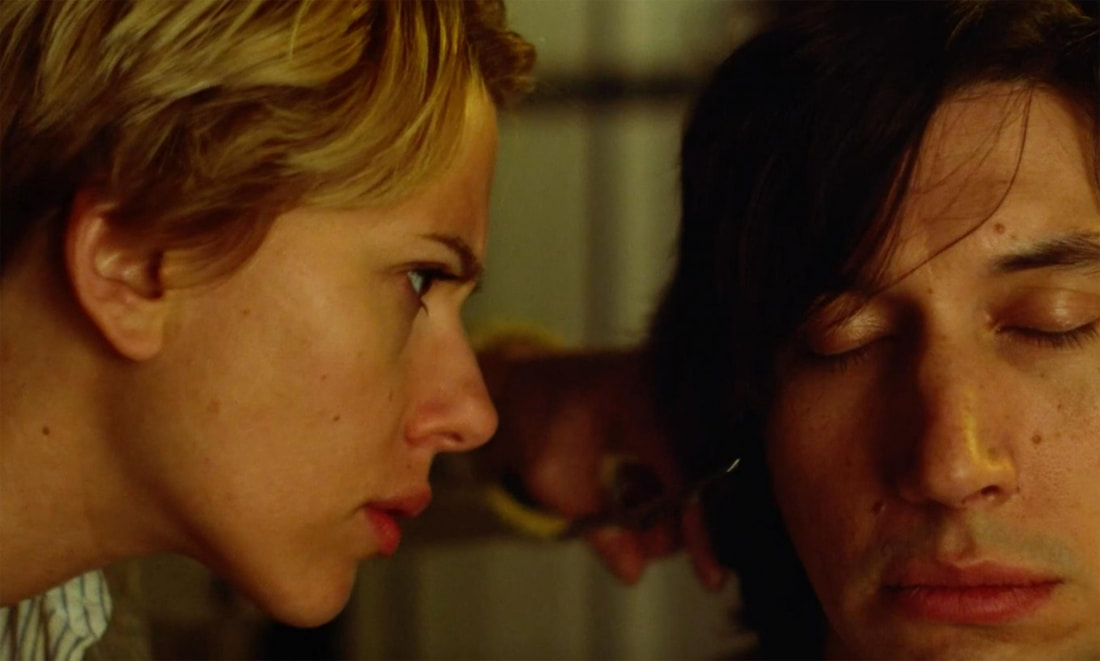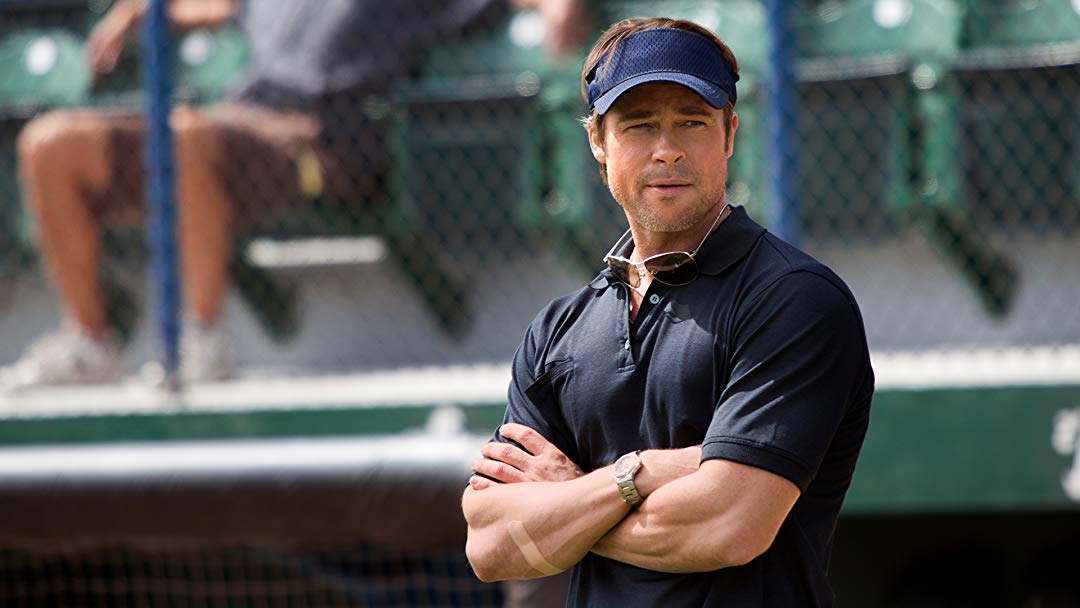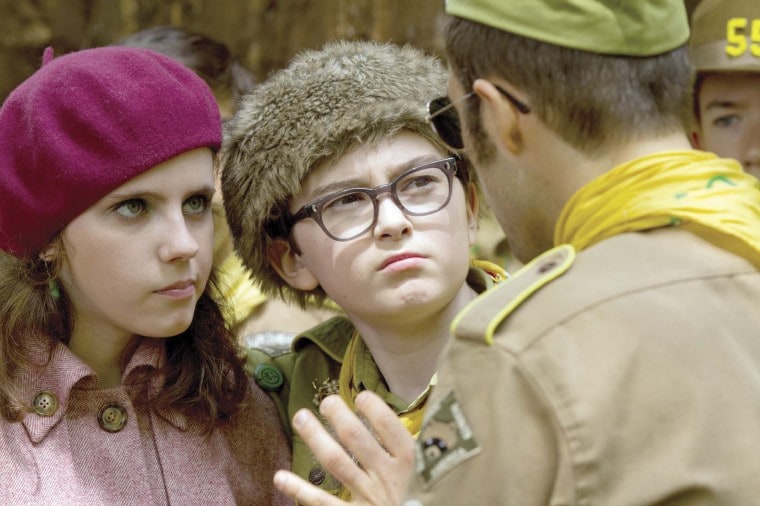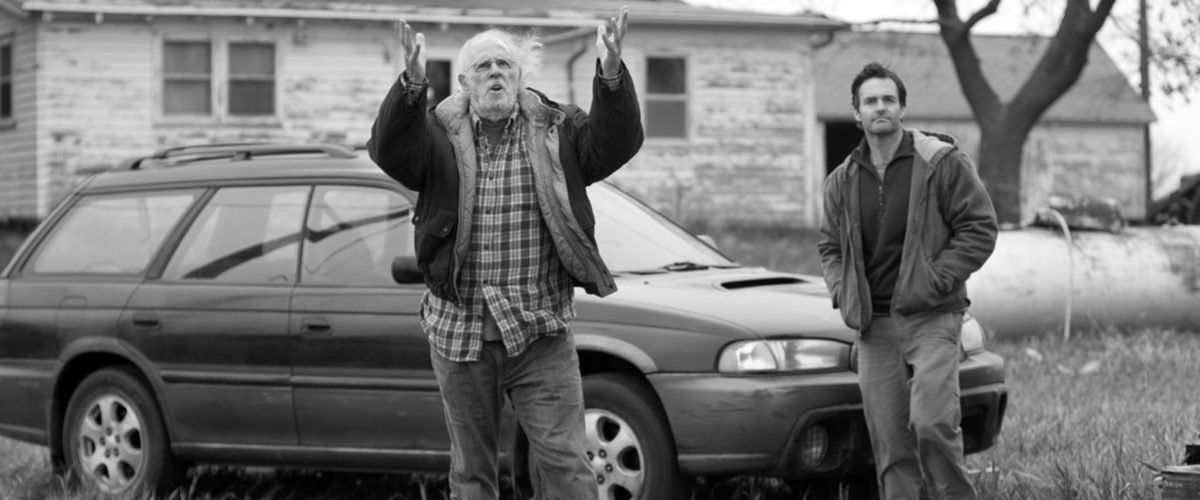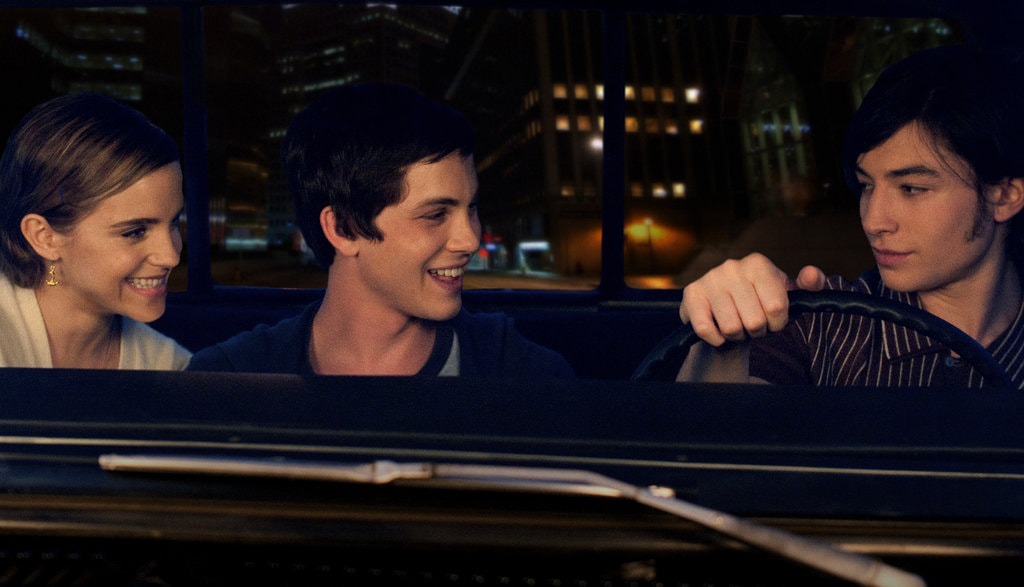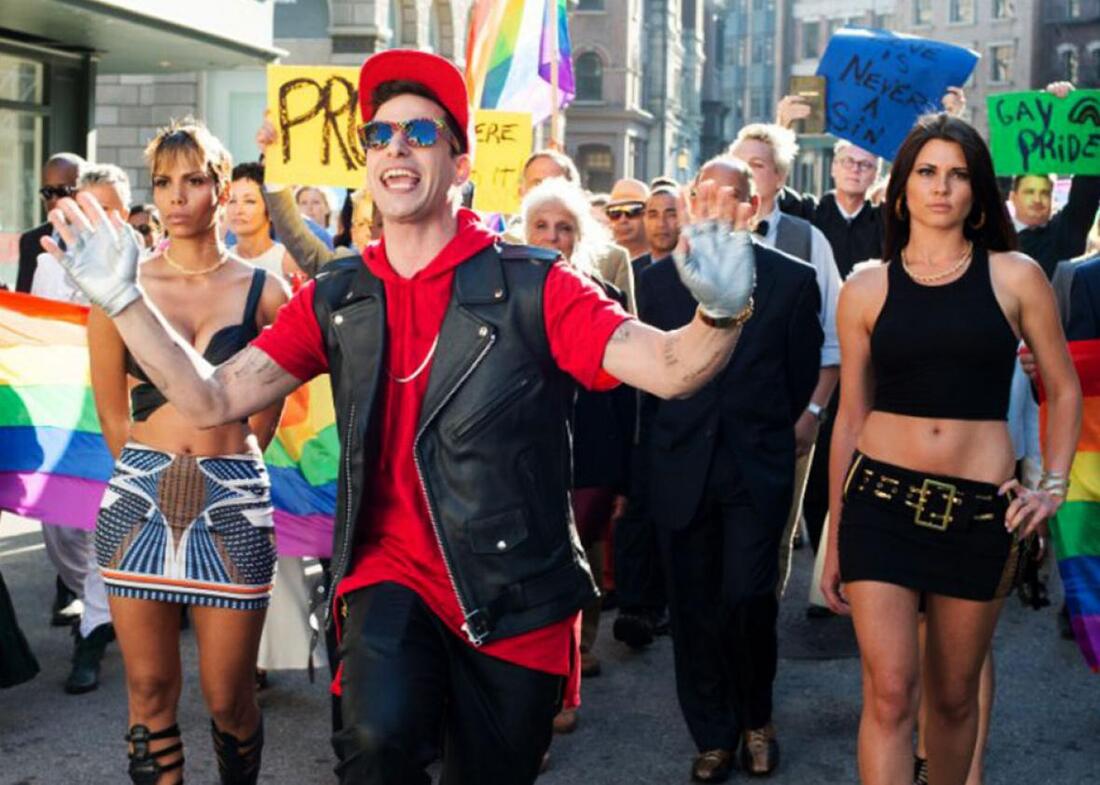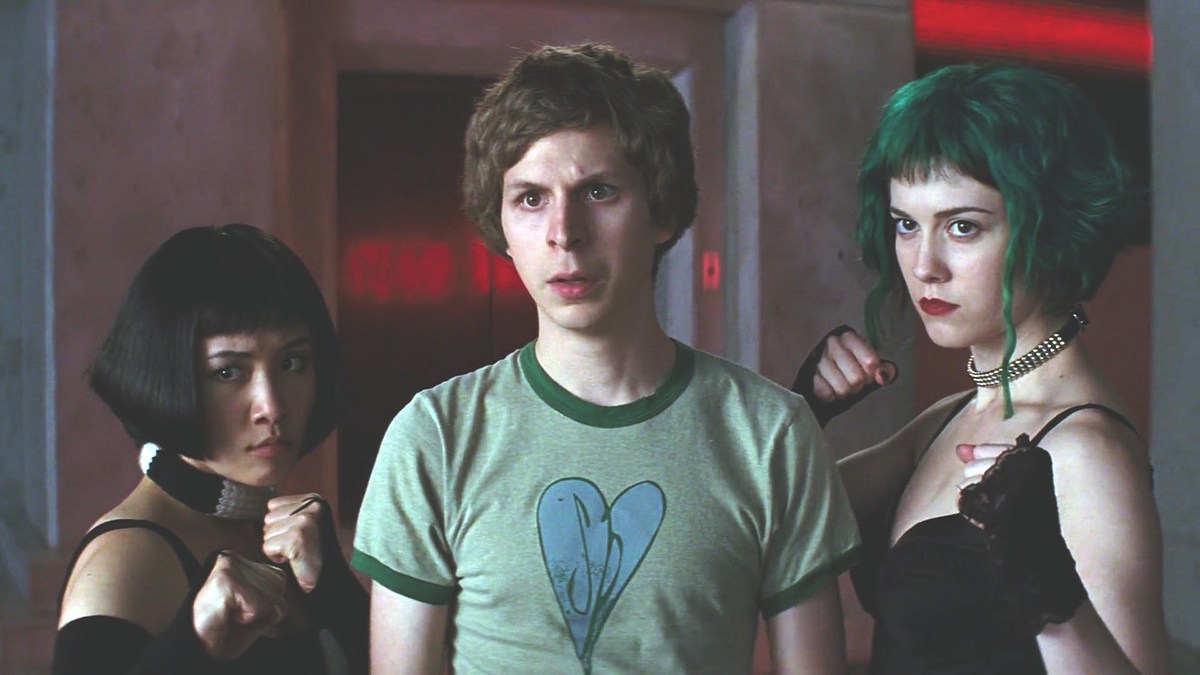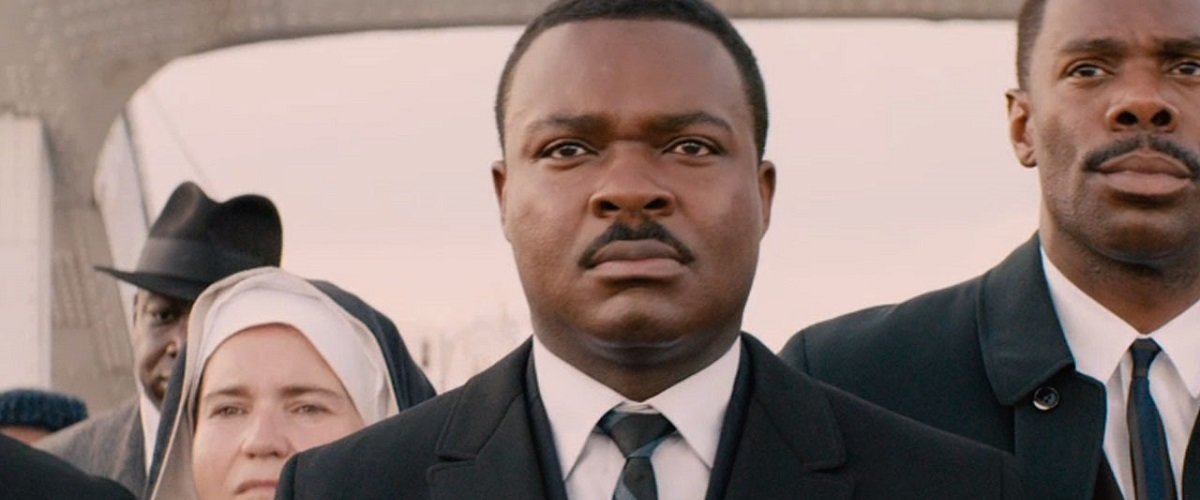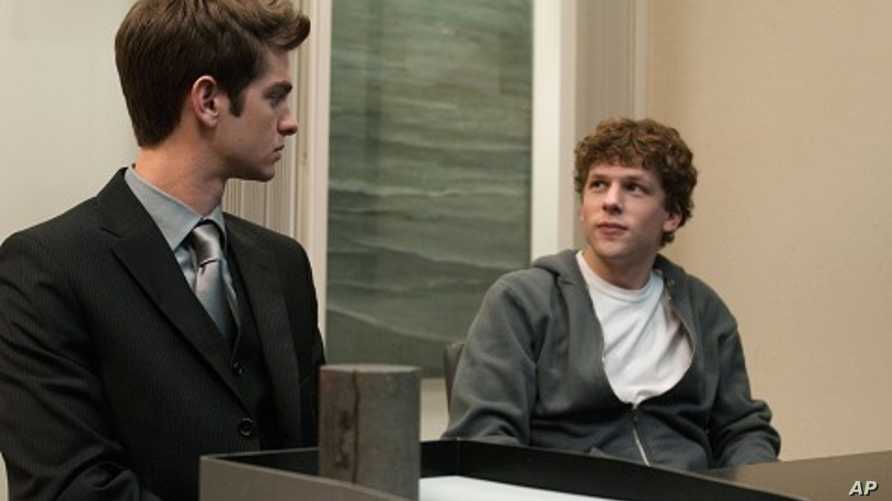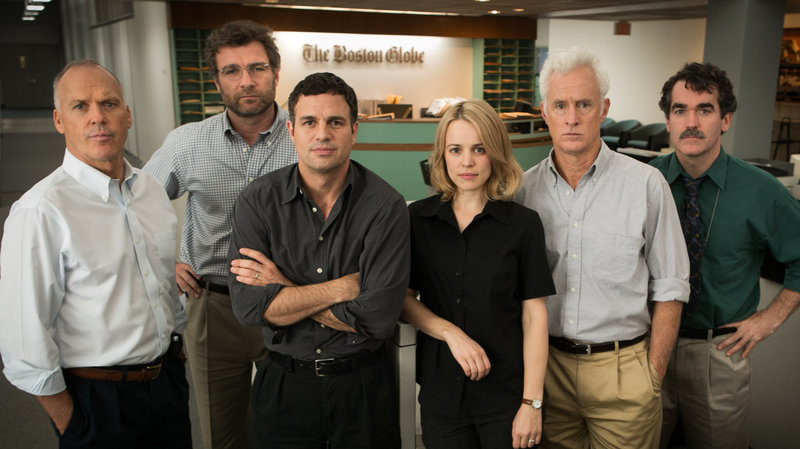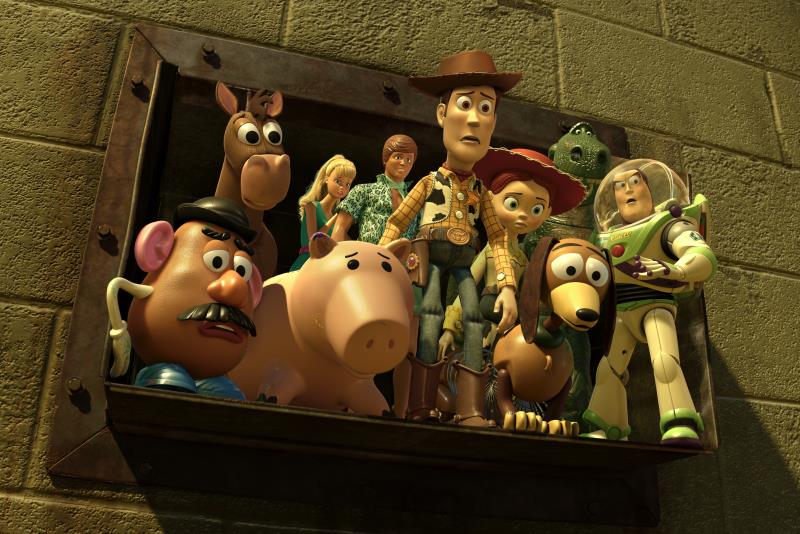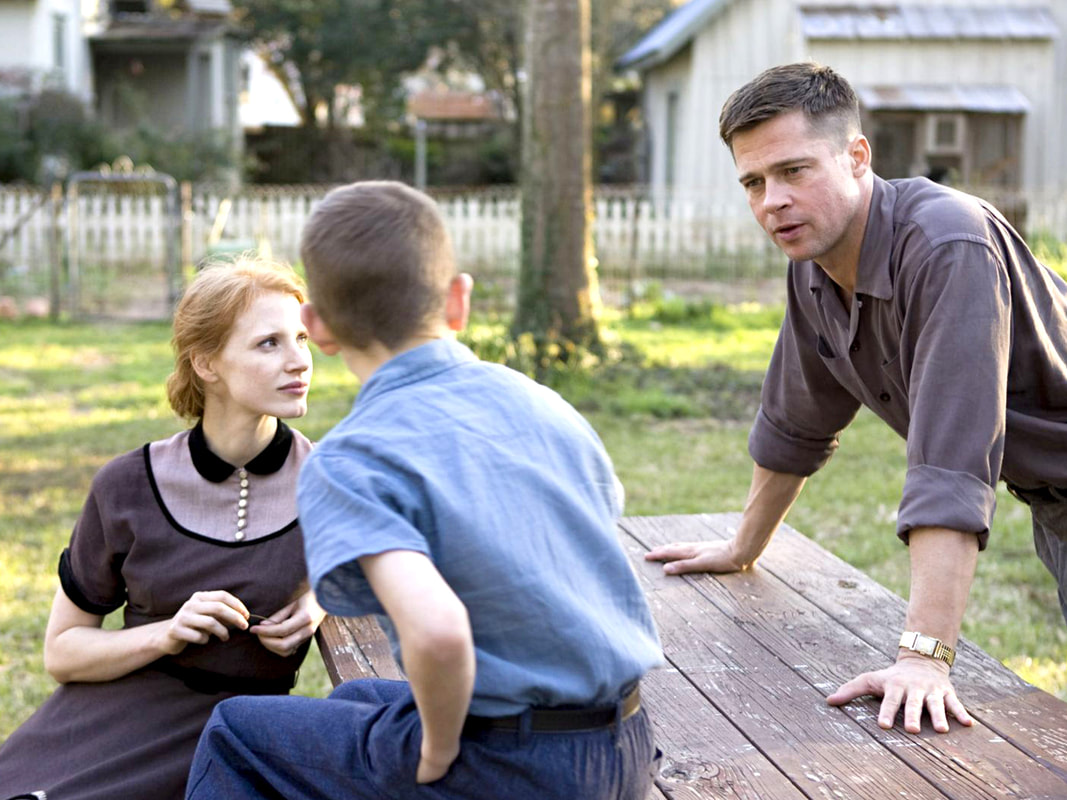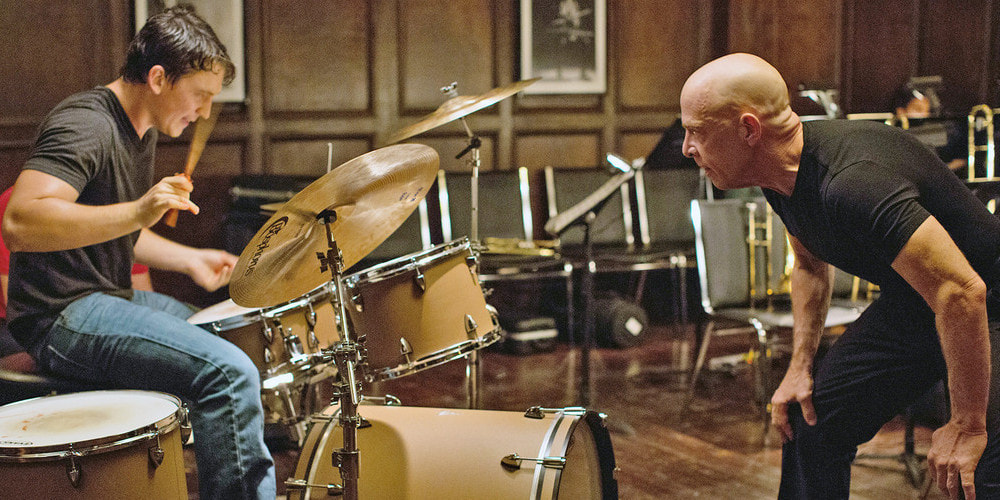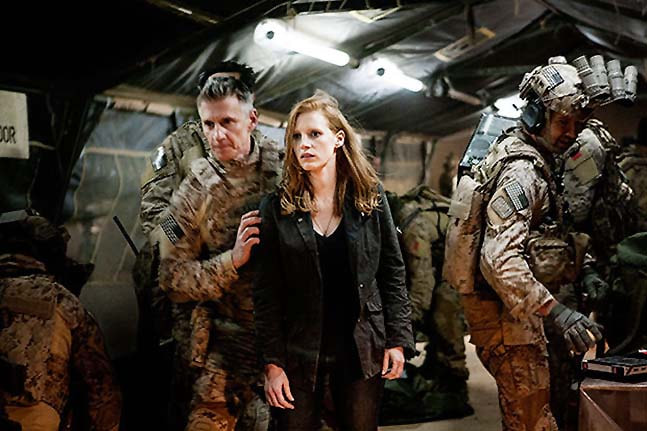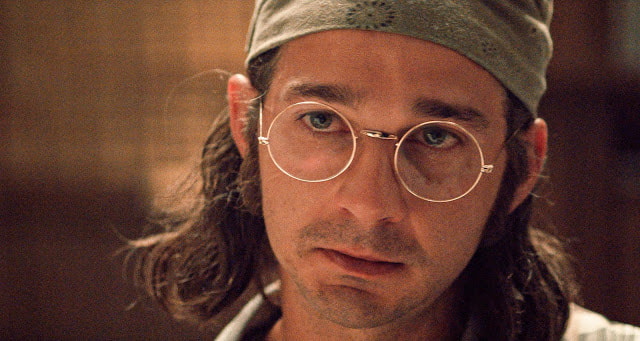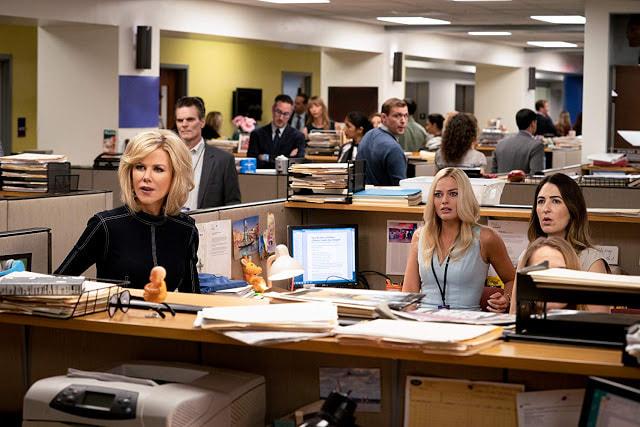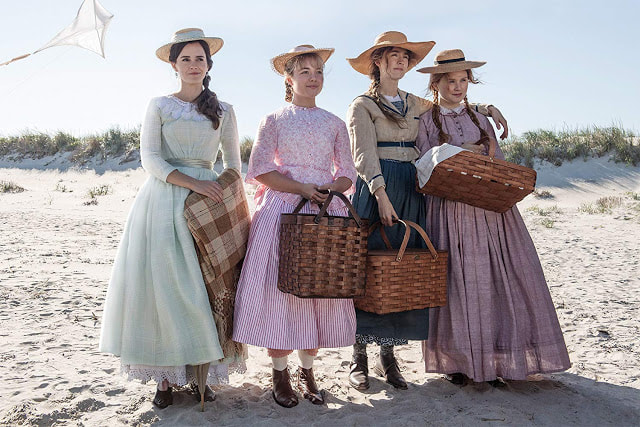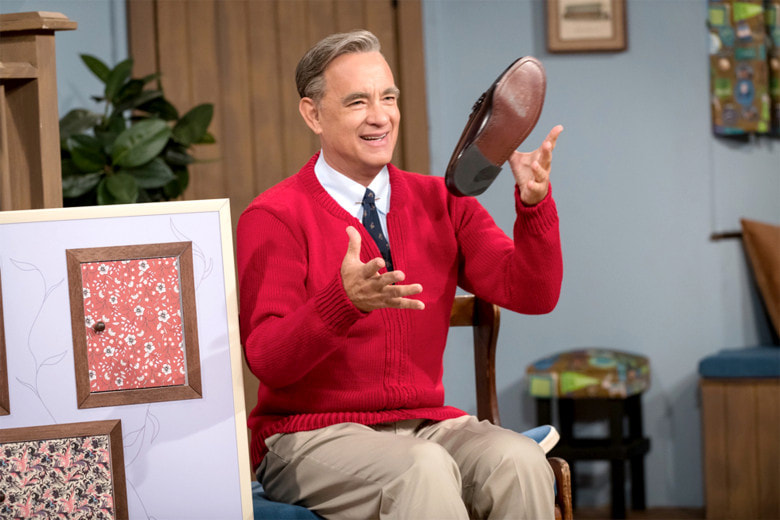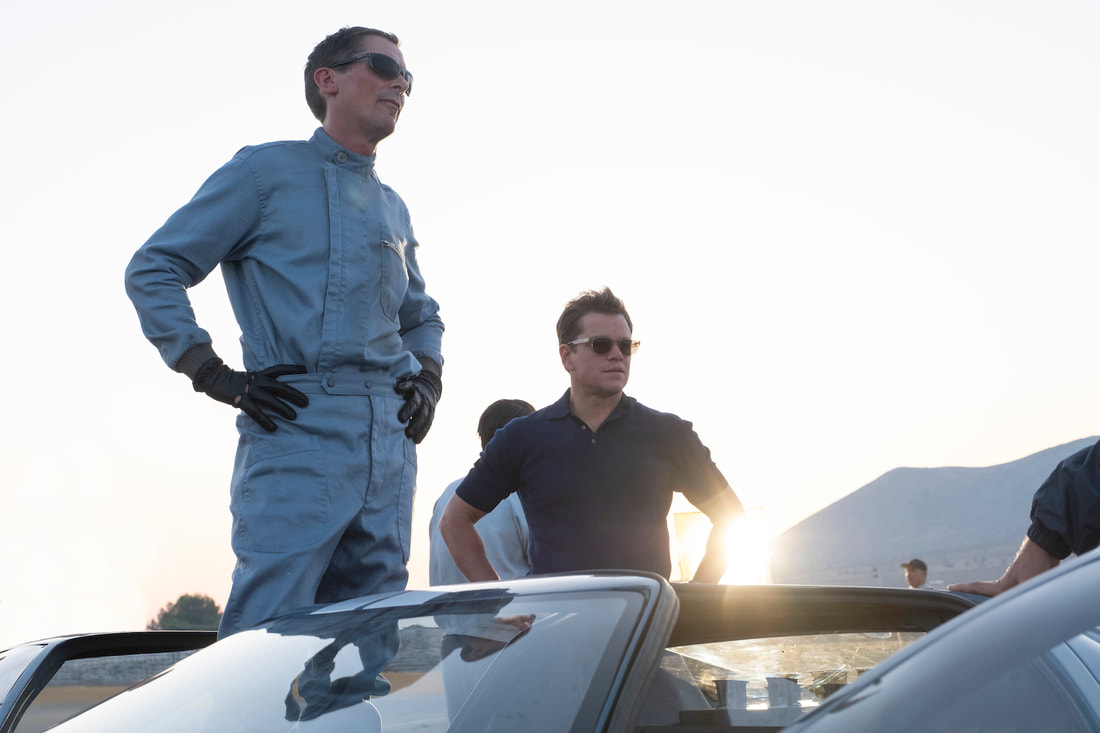|
by Philip Price 10. Ready or NotBrutal to its core with as much blood as a Tarantino feature, “Ready or Not” fuses that tricky tone of violence and irreverence into a wild, 90-minute experience. This isn't anything you haven't seen before, especially if you keep current with the horror genre, but it is so aware of what it is and so expertly crafted to be the best version of itself that everything about it feels original and raw. 9. The Last Black Man in San Francisco“The Last Black Man in San Francisco” is truly about this sense of history and this need to honor places and people who have become myths in their own right as their stories have been reconfigured as they've been passed down; the myth becoming more and more layered and further and further from the truth as it goes from one generation to the next. This abstract, dreamlike presentation of the past not being the best indicator for what should dictate one’s future. A film to be experienced almost more than it is to be discussed. 8. Dark Waters“Dark Waters” is not only compelling and exquisitely crafted but is terrifying as hell. A true wake-up call to a nation that has subscribed to the fact everything they consume probably causes cancer in one way or another. It's a shame this will get overlooked come awards season and not because it deserves the prestige (though it does), but because it won't be afforded the publicity that would garner more interest from the average movie-goer. It's a shame more people won't see this because I haven't been able to stop thinking about it since I did. 7. BooksmartMuch of the perspective on this seems to be focused on how it and its stars will be perceived down the road and what “Booksmart” will come to represent in their careers. Whether it be the one that introduced them to the world, the one they'll never get away from, or the one that may not be their best or biggest but will always be most people's favorite. Sure, “Booksmart” is likely to become any and all of these things just as it will undoubtedly become a staple of sleepovers for the current generation of high-schoolers, but the magic is in why it will become these things: the characters themselves. 6. JokerTodd Phillips and Joaquin Phoenix have intentionally crafted as gritty, raw and grounded a movie as any film inspired by comic books has dared to be and in that type of portrayal there is inherent shock to be found, but while “Joker” and its screenplay wrestle with what exactly it's trying to say it stands to make a statement about how this product of certain circumstance inspires a man to become what he believes necessary to remedy others from those same, undesirable circumstances. That's not to say he's right, but what is maybe most unsettling about the film and Phoenix's performance is that Arthur believes he is. 5. ParasiteThe calculated blend of drama, comedy, satire and unbelievable tension that is “Parasite” give way to scenarios in which the rich and poor see the same circumstances with vastly different perspectives; one recognizing what is being done to them as a con or crime while the other viewing it simply as a means to an end...survival, in other words. Director Bong Joon-ho ultimately alludes to the fact that the poor-no matter the lengths of their tactics or the subtleties of their actions-still find themselves figuratively buried if not literally, by the world and by the ramifications of their actions. 4. Avengers: EndgameThe culmination of eleven years and twenty-two films worth of story, “Avengers: Endgame” brings to a conclusion one of the greatest experiments in cinematic history and does so with as much grace and satisfaction as one might hope or expect a single moment to capture. That isn't to say there aren't a few hiccups along the way, but what is here to complain about feels so quaint in comparison to what the film gets right that they hardly seem worth mentioning. 3. Once Upon a Time ... In HollywoodAs someone who's never visited California or more specifically, Hollywood, and as someone who wasn't born until nearly two decades after the year in which “Once Upon a Time … in Hollywood” place there were no personal nostalgic ties to what is very clearly a very nostalgic movie for its writer and director. I love the movies as in "the movies", sure, both for their fascinating behind the scenes processes as well as certain aspects of the business, but it isn't necessarily any one thing in Hollywood that makes it special. Rather, it’s the effect each of these elements have on one another; the meticulous re-creation of 1969 informed and enhanced the performances of these fictional characters which were in turn heightened in the context of the film by the real-life events that writer/director Quentin Tarantino weaves through his narrative so as to create a sense of familiarity while still holding tight to the destination he's driving towards. Ultimately, this stands as one of Tarantino's best, most introspective works as it delivers the feeling one wants to leave the theater with after having experienced a Tarantino flick while the experience in and of itself is something of an unexpected and surprisingly soulful one. 2. Knives OutWith “Knives Out,” writer/director Rian Johnson reels you in under the guise the mystery is to be one thing, but the real mystery here isn’t what you suspect it to be and in breaking through this anticipated belief early on Johnson allows himself to not only deliver on the promise of a good “whodunit”, but layer in his characters and their revelations with pertinent commentary as to the sense of entitlement certain people feel. 1. Uncut GemsWhat is maybe the best aspect of the exceptional “Uncut Gems” is the fact that yes, this is very much Adam Sandler doing something outside of his standard routine, but this isn't Sandler playing serious simply for the sake of proving he can in fact act when the material calls for it. No, this isn't sad or depressed Sandler simply for the sake of being taken seriously, but instead writer/directors the Safdie Brothers have somehow lured the Sandman into giving both a layered, physical performance while also remaining one that plays off the inherent charm and charisma Sandler naturally possesses. Moreover, he's used perfectly here. So perfect in fact, it's hard to imagine anyone else in this role besides Sandler. “Uncut Gems” is not necessarily what one might think of as a rewarding experience, but it bears so many gifts and moments to cherish throughout that the stress inherent to them feels like little more than the price one must pay for such a high.
0 Comments
by Philip Price, Julian Spivey and Tyler Glover *portions of this article were previously published on this website 12 Years a Slave (2013)This is a film both so involving and at the same time so draining that you feel exhausted after having experienced it. It is a damn tough film to watch, but a necessary lesson in perspective that ultimately makes you appreciate what you've seen if not for the unflinching history lesson, but for the craft in which it is conveyed. It is a daring film that was willing to go that extra mile and put you in the psychological state of a slave that lived under constant pressure and stress, a life that many would say is not worth living, yet our ancestors are the ones who subjected these people to that lifestyle and held their one chance to make something of this one life nothing more than an existence they would have never lived given the choice. PP 21 Jump Street (2012)Comedies never get enough of the love they sometimes deserve in these year-end lists, but I love a year that produces a comedy I can really get behind and still feel credible when including it on something like this. I feel as if “21 Jump Street” has provided us with more sayings, more moments, more quotes that will live on for much longer. This is truly one of those movies I can put on any time and enjoy it. The main reason this film worked so well was the chemistry between leads Jonah Hill and Channing Tatum. PP The Artist (2011)When it was announced “The Artist” would be a black and white silent film, a lot of naysayers believed it to be a gimmick geared toward winning Oscars. Well, if it was a gimmick, it was a successful one. "The Artist" tells the story of a silent actor who feels his fame begin to dwindle at the rise of the "talkies." From an incredible script, great score, amazing performances from Jean Dujardin and Berenice Bejo, and the nostalgic setting of old Hollywood, "The Artist” truly delivers art on all levels. TG Avengers: Endgame (2019)The culmination of 11 years and 22 films worth of story, “Avengers: Endgame” concludes one of the greatest experiments in cinematic history and does so with as much grace and satisfaction as one might hope or expect a single moment to capture. Directors Joe and Anthony Russo have achieved what felt damn near impossible leading up to the release of the film and that is to have met the loftiest of expectations. Having been invested in these films for over a decade now and experienced the highest of highs and lowest of lows with each of the key players, ‘Endgame’ takes it upon itself to find both closure in and resolution to many of the biggest arcs that have - knowingly or unknowingly - been playing themselves out for much of this same time period. While ‘Endgame’ more than compensates the eager opening night audiences with its pure "fan service" finale, the casual viewer or even the small remainder of the rest of the general population that hasn’t seen a single Marvel movie-should they decide to invest themselves this late in the game-might find themselves rendered surprisingly affected in these times of great trial and potentially even greater consequence. PP BlacKkKlansman (2018)A history lesson and galvanizing procedural all in one, Spike Lee's “BlacKkKlansman” is one for the ages. An incredibly heavy, effectively powerful film that drenches you in the world in which it operates, pulls absolutely no punches, and delivers a film from a focused filmmaker who is not only presenting a timely conversation that needs to happen, but conveying his side of the conversation with style, eloquence and immense profundity. Many of Lee’s films are pointedly about what they’re about, but when Lee actually has a story to work his themes through, he is able to create more fulfilling and impactful experiences. This is what makes “BlacKkKlansman” the perfect story for Lee to tell. The true life events the film is based on provide an entertaining template to discuss the politics Lee desires to discuss while the true story is also entrenched in the racially charged dilemmas of the late ‘70s (and unfortunately, of today as well). In essence, it’s a perfect melding of artist and material. PP Coco (2017)Upon first learning of a sequel to Mary Poppins, I was very skeptical and felt it was going to be a disaster. Rob Marshall had the success of "Chicago" but also the failure of "Nine" in its movie musical filmography. Which one would it be? It was not quite the level of "Chicago" but turned out to be one of the biggest surprises of the decade for me. In this sequel, Mary Poppins returns just as a grown Michael Banks is about to lose the family home due to the crooked antics of the new leadership at the bank. Rob Marshall's direction, Emily Blunt's practically perfect in every way portrayal of Mary Poppins, and the terrific songs really make this film something truly special. The Descendants (2011)I’m still a bit bothered that George Clooney didn’t win a Best Actor Oscar for his role as Matt King in Alexander Payne’s 2011 release “The Descendants.” It might seem unlikely or even impossible for a film to be both heartbreaking and heartwarming all at the same time, but that’s exactly what you get with this film. “The Descendants” follows the busy and currently tragic life of Matt King, who is a descendant of one of Hawaii’s first white, land-owning families and thus, along with his relatives, owns a good portion of Hawaiian land, which is worth a pretty good fortune. One of the plotlines in the film is whether or not Matt will give the OK to sell off this land, which is an emotional and difficult task on its own, but is compounded by the fact that his wife is in a coma from a boat accident and she’s not going to make it. And, if all of that isn’t enough, shortly into the movie Matt finds out that his wife was having an affair before her accident. That’s not even it, Matt also has two daughters who he must learn to raise, the oldest of which is quite the troublemaker. It’s a tour de force performance from Clooney trying to navigate all of this and he does it with an effortless ease. JS Drive (2011)What I love most about "Drive" is it proves a film can truly be both greatly artistic and fun at the same time. I can't say that I had a more engaging experience at the theater while also admiring the craft on hand. Every element of this film comes together to create a piece of cinema that is in a class all its own. It is a combination of the familiar to make something completely unique. It is a patient movie; it is a rush of adrenaline. And what is most beautiful is that the movie as a whole becomes the idea, an incarnation of our main character. It is cool and collected, stylish to the point of envy and exuding confidence even if everything about it might have been a gamble. The minute it was over I wanted to go right back in and see it again. "Drive" is no doubt an unnerving experience and sadly, one some people will not understand if they go in expecting a full tilt action flick the trailers made it to be. I'm just glad that it wasn't the standard "Fast and Furious" though, I am thankful Ryan Gosling was wise enough to choose a director for the material who could really turn this into an experiment that at the end of the day is just as thrilling and ten times more artistic than what this could have easily become. Excuse me now, while I go pick listen to the soundtrack and continue to drive around pretending to be a bad ass. PP Dunkirk (2017)Christopher Nolan’s 2017 film “Dunkirk” is a masterpiece in letting the action and events of a story take the main focus and not any one performance or multiple performances. The evacuation of Dunkirk during the early part of WWII was a key moment for the success of the allies and especially the British as it would’ve been a devastating loss of life had it not been successful. Nolan tells the story of this evacuation in three facets: land, sea and air and with the film containing little dialogue gives it this documentary like feel that really places you within the story. JS Ex Machina (2014)The concept of robots overtaking the world or becoming more intelligent than humans has been covered in films like "I, Robot," where the focus is preventing world domination. "Ex Machina" focuses on the fate of one individual robot, making this story more personal. The story follows a programmer at a search engine company who wins a week-long vacation to the CEO's isolated home. When arriving, he learns he will be part of a Turing test for a female robot named Ava created by the CEO. Mystery, intrigue and suspense ensue. From the incredible script, Alicia Vikander's spellbinding performance of Ava, the Oscar winning visual effects, and a truly compelling plot twist, "Ex Machina" proves to be a truly intelligent machine. TG First Reformed (2017)Paul Schrader has made a career of analyzing the psyches of tortured male souls and their having to grapple with the varied struggles and conflicts their environment and/or time in history dictates they deal with. In “First Reformed” the writer/director is very much speaking to the time in which the film has been made as this is a story of a man full of anxieties and uncertainties despite his outward facade of peace and a certain serenity that only such measured priests can uphold. “First Reformed” doesn't care to follow a repeated quandary such as a crisis of faith, but instead takes on the story of a man who was beaten down by life long before he decided to make the church his one and only true love. Ethan Hawke portrays Reverend Toller in one of his best performances to date in a career filled with memorable performances as Schrader analyzes the mentality of suffering to earn salvation, but as Toller at one point poses, "Who can know the mind of God?" At another point though, Toller derives what is necessary to please God in his own, twisted way, thus painting the broad themes of contradiction that often informs the religious as well as “First Reformed.” In short, it's a thinker, but it's a stunner. PP Get Out (2017)“Get Out” is a rather striking thriller that provides a topical conversation around racial tensions that then amplifies and exaggerates the inherent tensions of its presented scenario in a way that both plays with the tropes of the horror genre while delivering commentary on innate and unavoidable fears in the black community. I heard someone explain it as, "playing on black people's fear of white people's fear of black people," and it's hard to put it any better or more simply than that. “Get Out” is making the point that we need to stop pretending we know what it's like to walk in other people's shoes. The writing of Jordan Peele that gives these performers such biting material to deliver and that, most impressively, stays consistent throughout the film’s entire runtime and most striking-through its faultless pacing. No matter how well the majority of horror films begin the trickiest part is always pulling off an ending in a way where every facet and action that has been laid out prior is paid off in the reveal and in the actions and consequences the characters take and are made subject to in the final moments. Does the end justify the means we took to get there? In “Get Out,” everything has a purpose. Not just in its success as a piece of art, but as a satirical social commentary that exposes the vicious circle of assumptions and prejudice “Get Out” works on nearly every level it attempts to play on. PP The Grand Budapest Hotel (2014)Wes Anderson's “The Grand Budapest Hotel” is many things, but at its heart it feels like a quiet epic, a love letter to time gone by with a narrative spanning decades that chronicles the exceptionally unexceptional life of one young man who was influenced by another and would have his world forever changed because of him. It is as much about the world one creates around themselves and how it determines the outcome of one’s life as it is about the actual plot of the story which, be not afraid, contains prison break-outs, gun fights, affairs with older women and a fair amount of lies and deception. More than all of this though, it is a film that beautifully demonstrates the thin line that sometimes exists between real life and imagination. PP Gravity (2013)The moment the title card came up at the end of “Gravity” I was ready to see it again. It has that type of effect on you where despite the fact what you've been a part of over the last 90 minutes was completely terrifying, completely out of your comfort zone, completely eye-opening and maybe to certain things you wouldn't want to admit; it was still so exhilarating that you want to experience it again and immediately. Director Alfonso Cuarón, who made the well-received but little seen “Children of Men” and my personal favorite Harry Potter film (“The Prisoner of Azkaban”), has crafted what could easily become one of those defining moments in cinematic history where the mythology that will no doubt come to surround “Gravity” will be as great as the content of the film itself. This is a game-changer in ways only those who hope to create something bigger than themselves, something that pushes the boundaries, but does so for the right reasons could only hope to achieve. It is a film that as far as I can tell best captures the feeling of being in space without actually having to go there. The vastness of it, the colossal weight of what it means, the beauty of it all, yet the film also comes to carry much more weight than simply functioning as a National Geographic tutorial on space travel while teaching a lesson about the consequences of space junk; it is a story about existence, about human nature, about the will to live and everything that comes along with these giant themes that are as extensive as the universe itself. PP Hell or High Water (2016)Taylor Sheridan has crafted a film where the old west meets the new one and the characters at the heart of it have crafted a genuinely brilliant plot in which they must carefully execute to get to where they want. Sheridan, while writing a new-fangled Western of sorts, is more interested in dissecting the lengths this world generally thought to be run by outlaws must go to in order to keep this already minimal lifestyle intact. For no matter this branded reputation, it was nearly impossible to escape the post-2008 world where financial crisis spread into every bit of our civilization. By presenting this picture of a modern disaster through the lens of people continuing to lose their land screenwriter Sheridan and director David MacKenzie together deliver a perfect balance of old and new, of how ignorance must give way to insight, and how bad things must sometimes be done in order for victims to prevail. PP Hugo (2011)“Hugo” was maybe the most beautifully looking film I watched all decade and I truly believe this 2011 3D film by the legendary Martin Scorsese is already one of the most underrated films not only of the decade, but also of Scorsese’s illustrious career. “Hugo” was a must-see in 3-D as Scorsese incorporated the technology in a way that perhaps no other director had before. The use of 3-D in this film is astonishing and truly makes you realize that film is an art form and Scorsese a master artisan. It’s a film that is a love letter to cinema and any movie lover should instantly fall in love with. “Hugo” tells the tale of an orphaned boy who lives in a railway station in Paris during the 1930s and befriends the important French silent filmmaker Georges Melies. Scorsese doesn’t do family movies, but he absolutely knocked this one out of the park. JS Inception (2010)"Inception" lived up to the expectations I held for it. And they were pretty darn high. Chris Nolan, with this original piece of filmmaking has set himself apart from just being "the guy who made ‘The Dark Knight’. This film, while not being as complicated as you may imagine, actually has the tone of a bank heist film. Of course, the difference here being that in “Inception” the bank is the mind and the team of robbers aren't stealing as they would usually do, but instead they are leaving something behind. It is a grand idea and Nolan explores it without losing anyone. Though he does assume his audience is smart enough to keep up, something we haven't really had to do much at this cinema this decade. PP Inside Llewyn Davis (2013)I have enjoyed Coen brothers films over the years and usually find their tone and sense of humor inviting and extremely in line with how my inner most thoughts work. “Inside Llewyn Davis” feels like something special though, something I'll cherish for a long time to come. Joel and Ethan Coen bring their bleak, deadpan humor to the 1960s Greenwich Village folk scene and focus on a kind of day in the life of a struggling musician. Ultimately, the film becomes more than this and plays into the larger themes of disappointment and the difference in leading a fulfilling life and simply existing. It is, in many regards, a hard truth to swallow about human nature, our dreams and how we are conditioned to believe things must go a certain way in order to be regarded as a success which commonly translates to a satisfaction with one’s self not too many people seem to ever fully reach. PP The King's Speech (2010)When director Tom Hooper’s 2010 film “The King’s Speech” won Best Picture at the Academy Awards in 2011 there were a lot of people upset that it beat David Fincher’s “The Social Network” for the honor (including this site’s very own Philip Price). It’s become somewhat of a growing controversy since then, but you can count me in the minority of folks who thought ‘King’s Speech’ deserved the honor. I absolutely adored the film about King George VI’s speech impediment and his work with speech and language therapist Lionel Logue to help him cope with it enough to give a declaration of war on Germany speech on radio. Firth’s truly earned his Oscar with his performance and though I was a big fan of Christian Bale’s Oscar-winning turn in “The Fighter,” I felt Geoffrey Rush should’ve won the Oscar for playing Logue. JS La La Land (2016)When Faye Dunaway and Warren Beatty announced "La La Land" as the Best Picture Oscar winner, it did not shock me, and it felt like what was going to happen all award season. When it was all revealed to be a mistake and that "Moonlight" was the actual winner, I was so bummed. "La La Land" is definitely one of the best films of the decade. “La La Land” incredibly won all seven Golden Globes it was nominated for and holds the record for the most Golden Globe wins for any film in history. When you hear of a musical being released in theaters, it is normally a Broadway adaptation. "Chicago," Mamma Mia" and "Phantom of the Opera" are examples of that. It is not an everyday situation where an original musical is released into theaters. If I were a movie executive, I would be very skeptical and easily deem it to be risky. Damien Chazelle tells the story of Sebastian (Ryan Gosling), a struggling jazz musician, and Mia (Emma Stone), a struggling actress who works in a coffee shop on a movie lot. One night, Mia overhears Sebastian playing the piano at a restaurant and goes in to listen. They eventually become a couple and the story follows Mia and Sebastian as they navigate their dreams and contemplate whether their individual dreams can be fulfilled as a couple. This film has a way of feeling current and nostalgic at the same time. The opening scene where people stuck in traffic sing and dance on the highway feels very current and brings us right into present day Los Angeles. Then, later on, Gosling reminds me of Fred Astaire when dancing with Mia to "A Lovely Night." The story really relates to all of us. All of us have dreams and all have to make sacrifices in order for those dreams to come true. Sometimes, things work out and sometimes, they do not. What really brings it all together is the performances from Gosling and Stone. They have such amazing chemistry. The way they look at each other, sing together and dance together makes you believe this is a couple that lives next door. From amazing direction, choreography, performances and a relatable story, "La La Land" truly is a phenomenal film of this decade that reminds us to dream. TG Lincoln (2012)After watching Steven Spielberg’s 2012 epic biopic on the final four months of President Abraham Lincoln’s life and his efforts to have the Thirteenth Amendment abolishing slavery passed I knew that Daniel Day-Lewis was born to play Lincoln. Of course, we don’t know what Lincoln sounded like, but Day-Lewis absolutely inhabited perhaps the most the legendary American figure to ever live on his way to winning his record-setting third Best Actor Oscar. The entire ensemble cast is terrific with great performances from Tommy Lee Jones, Sally Field, David Strathairn and a truly underrated performance from James Spader. Few films have ever made 1800s politics seem as exciting. JS Logan Lucky (2017)Steven Soderbergh had been successful with the heist genre before with the ‘Ocean’s’ trilogy, but rednecked it up a bit in 2017 with “Logan Lucky” to great effect. Channing Tatum plays a down-on-his-luck divorced dad recently laid off his job who devises a play to rob a NASCAR track on the busiest day of the track’s year with his veteran brother, played by a riveting Adam Driver, and a backwoods explosives expert, played by Daniel Craig in a scenery chewing role like he’d never done before (and honestly should’ve gotten him Oscar-nominated). “Logan Lucky” is hilarious and heartwarming all at the same time and does an excellent job telling a Hollywood story of people often forgotten by Hollywood in a way that doesn’t poke fun at or degrade them. JS Marriage Story (2019)Noah Baumbach’s 2019 drama “Marriage Story” isn’t an easy or fun watch, as no properly done movie about such a serious topic as divorced and breaking up a family would be, but the performances by Adam Driver, a likely Oscar front-runner for Best Actor, and Scarlett Johansson, who should be a shoo-in for an Oscar nomination for Best Actress, are among the best of the decade. Particularly in scenes where Driver and Johansson just go at it verbally these two are on their A-games in what could be the best performance of each of their careers thus far. It’s a piece of honest storytelling that isn’t easy to come by. JS Mary Poppins Returns (2018)Upon first learning of a sequel to “Mary Poppins,” I was very skeptical and felt it was going to be a disaster. Rob Marshall had the success of "Chicago," but also the failure of "Nine" in his movie musical filmography. Which one would it be? It was not quite to the level of "Chicago," but turned out to be one of the biggest surprises of the decade for me. In this sequel, Mary Poppins returns just as a grown Michael Banks is about to lose the family home due to the crooked antics of the new leadership at the bank. Rob Marshall's direction, Emily Blunt's practically perfect in every way portrayal of Mary Poppins, and the terrific songs really make this film something truly special. TG Moneyball (2011)There have been many great baseball movies made over the years, but none that got into the absolute nerdom of the behind the scenes of the game like director Bennett Miller’s 2011 film “Moneyball.” The film tells the true story of the Oakland Athletics 2002 fairytale season and how the team was constructed using a sabermetric approach to selecting players for the team on a limited budget. The screenplay was co-written by Aaron Sorkin and Steven Zaillian based off Michael Lewis’ 2003 book and I swear only Sorkin could make something this seemingly boring on paper feel this exhilarating on screen. JS Moonrise Kingdom (2012)Wes Anderson’s 2012 film “Moonrise Kingdom” is like a strange fairytale, but in the very best of ways. One of the most visually stunning films of the decade it features a tale of young love with terrific child acting performances from Jared Gilman and Kara Hayward and an all-star cast of Anderson regulars like Bill Murray, Edward Norton and Tilda Swinton surrounding them. Somehow Anderson makes the film feel like a dream and an old-timey tale all at the same time in one of the strangest and delightfully funny and moving tales of the decade. JS Nebraska (2013)I’ve really been into director Alexander Payne’s work this decade with both 2011’s “The Descendants” and 2013’s “Nebraska” both appearing on this list. Interestingly, “Nebraska” is the only film of Payne’s critically-acclaimed career he didn’t also write, as Bob Nelson penned this comedy-drama road film about an elderly Montana resident, played by an Oscar-nominated Bruce Dern in perhaps the role of his life, who wants to make it to Nebraska to claim a million dollar sweepstakes prize he believes he’s won. The most impressive thing to me about “Nebraska,” and this is saying a lot, is Will Forte’s serious performance as the son of Dern’s character – it’s something we hadn’t seen on film from the extremely funny Forte before or really since. “Nebraska” is also a beautifully filmed picture of parts of America you don’t often see on film and Payne made the excellent decision to film it all in black and white. JS Once Upon a Time in Hollywood (2019)I've been trying to figure out exactly why "Once Upon a Time in... Hollywood," the latest opus from auteur Quentin Tarantino, hit me the way it did. As someone who's never visited California or more specifically, Hollywood, and as someone who wasn't born until nearly two decades after the year in which the film takes place there were no personal nostalgic ties to what is very clearly a very nostalgic movie for its writer and director. I love the movies as in "the movies", sure, both for their fascinating behind the scenes processes as well as certain aspects of the business and I adore the idea of crafting this love letter to a bygone era that, in many ways, is reoccurring at this very moment even if the players are very different in the similarly circumstanced game. Any piece of work that provides insight into any aspect or era of the movie business is typically something I'm game for, granted, but even my affinity for films and television shows produced in the late fifties through to the end of the sixties is low and wouldn't justify the instinctively adoring reaction these impossibly detailed re-creations of such receive and no doubt deserve. The story, aesthetic, and ideas enticing audiences of a certain age while the pairing of stars like Brad Pitt, Leonardo DiCaprio-both of whom are the last of a dying breed in terms of pure movie stars with DiCaprio serving more as the pure "name on the marquee" here given his track record-along with added-value elements like Margot Robbie and the reputation of Tarantino as a brand as much as he is a writer/filmmaker enticing the younger crowds is genius especially given the fact large sections of both audiences need to feel a film is something of an "event" in order to even be inspired to make a trip to the cinema these days. PP The Perks of Being a Wallflower (2012)Everything about “The Perks of Being a Wallflower” is subtle. As it should be. From its beautifully subdued soundtrack to its washed out color palette. Even in the flashiest of performances and moments that creep toward the melodramatic this lovely film is limited to its inherent honesty. While director and screenwriter Stephen Chbosky has created a film that will live on for generations as John Hughes’ films of the ‘80s do, “The Perks of Being a Wallflower” will be referenced by teenagers of the time period it represents as well as teenagers of today. It could really be set in any time period and the dynamics, the relationships and the conflicts that these teenagers go through will be the same they just might have a different set of stipulations. This is the closest thing we will likely ever have that touches the magic of those Hughes produced movies and, as in the cases of those films, what will really live on and stick with you long after the movie has come to a close are the characters. PP Popstar: Never Stop Never Stopping (2016)There is a definitive climactic feel to everything about “Popstar: Never Stop Never Stopping” from The Lonely Island, as if a culmination of everything the trio has been working towards since "Lazy Sunday" debuted on “Saturday Night Live” in 2005. Andy Samberg, Jorma Taccone and Akiva Schaffer have always had a knack for writing these catchy, hilarious spoofs of trending musical styles by taking timely and/or brutally honest perspectives and applying them to legit beats created by credible producers. The trick is they convey their sometimes cutting commentary and other times all out ridiculousness with the mentality of the pop culture machine in that it all feels superfluous and can be enjoyed for its surface level pleasures, but if one cares to look there is more there. The Lonely Island have applied that same approach and ideology to this feature film project as this is very much a mockumentary that is lampooning the trend of pop stars producing their own "behind the scenes" documentaries in order to both appeal further to their established fan-base while hopefully converting a few of the uninitiated as well. PP Scott Pilgrim vs. the World (2010)Director Edgar Wright has provided a completely original, fun and inventive film that is a pure representation of this generations love story. 'Scott Pilgrim' is simply a feast for the eyes and more importantly the brain. No, it's not some elaborate story and it does not possess an elaborate plot, in fact it is very much the same story as every other Michael Cera movie, but it is the way, the style in which it is told that makes the film stand firmly in a league of its own. Certainly, this film has a specific audience and it was hard for me to tell whether or not those not involved with this generational gap would care for, "get' or like the film. Its themes are universal though and it translates emotions into visual art pieces and does so in a wam pow comic book fusion that not only gets its tone and mood across correctly but is entertaining to look at and become involved in at the same time. PP Selma (2014)“Selma” is a rousing, expertly paced film that truly has the ability to inspire despite its structural conventions. The film itself is a solid four-star historical drama that is elevated to perfection by David Oyelowo's exceptional performance. “Selma” really picks up after the 1963 bombing of the 16th Street Baptist Church in Birmingham, Ala. This event, depicted in the film with shattering bluntness and emphasizing the loss of innocence for no other reason than hate is a catalyst for the actions that “Selma” chronicles. Director Ava DuVernay is intent on leaving a mark on the viewer immediately and she does so by strongly letting the visuals speak for themselves in her depiction of the aftermath of this bombing. It resonates and it stays with you as everything else in the film unfolds. There is an inherent importance, rage and vitality to the filmmaking on display here. “Selma” shook me to my core, it conjured up feelings of wanting to do more and it so specifically kept its goals in focus that the power it carries will be felt for a long time to come. PP Sing Street (2016)Director John Carney (“Once”) was born in 1972 making him 13 or so in 1985. His film “Sing Street” about a boy growing up in Dublin, Ireland during the 1980s who escapes his strained family life by starting a band feels remarkably autobiographical. Not knowing if this was the case or not before seeing the film (doing a little research reveals it in fact is) I could feel this sense of closeness, of passion for not only the time period and the music that is so evident it's contagious, but in the feelings these characters are actually feeling. In other words, it is beyond evident that Carney, who also wrote the screenplay, experienced much of what is on screen here himself. To accompany these feelings Carney is attempting to resurrect from his childhood is the music of that decade as well. With each of these moments we have a song or a lyric that elicits the grander emotion, the nostalgia-tinted adoration for the promise that youth holds, and it is in these elements that “Sing Street” transcends being more than a simple coming of age story. It is a layered and complex film about adolescence and yet you never feel the weight of such themes because you're too busy being wrapped up in the infectious and heart-warming music the characters create from these circumstances. PP The Social Network (2010)Relevance, it's the biggest thing “The Social Network” has on its side, and that is a very good thing because it is very well made and completely enthralling. As our main protagonist and creator of Facebook, Jesse Eisenberg plays Mark Zuckerberg with a fury of quick wit, intelligence and pure snarkiness. It is ironic this squirrelly college sophomore who turns to blogging to take his frustrations out after being dumped, this obviously socially awkward fella who has as many friends as you have fingers on one hand created the biggest social networking site in history. In that, is where we find our interest, in his accomplishment is our daily lives. The film is dialogue and character driven, it is within these interesting conversations that smart people have that we are told the story of the origin of Facebook, the events that influenced the site, the people who were lied to and back stabbed along the way. Director David Fincher shoots the movie very steady, no moving camera tricks, just static capturing the performances. He puts them in neutral colors and gives different points of view over one coherent story as to how this all went down. Who knew the creation of a website could be so rich with drama and deceit? Writer Aaron Sorkin delivers scene after scene that overlap and reveal the true colors of every person on screen. It is pure poetry and the actors, who have a huge job on this film, do the writing justice and bring this story to life. It is a cultural phenomenon and we are lucky to have a film that chronicles how something big can come from the most basic emotions that we all share. It is jolting, effective, complex and nothing like you probably thought. PP Spotlight (2015)I don't like that these things happened, I don't like that they happened within an organization I affiliate myself with, but they did happen, and we can't act like they didn't. The church has recently taken steps to be more transparent with their parishioners and I can appreciate that. What I appreciate about the film though, is that it never attacks the Catholic faith and it never criticizes those who choose to follow the church, but instead it simply tasks itself with exposing the repercussions of the victims while getting to the bottom of an investigation that was being covered up by some bad folks: clergy and lawyers alike. Director and co-writer Tom McCarthy have delivered a perfectly executed film with no hiccups, no time for second guesses and nothing narratively to take away from the main objective. “Spotlight” is a prime piece of meat with all of the fat trimmed and only the juiciest parts left so as to make the whole experience one of pure, concentrated excellence. PP Toy Story 3 (2010)Some people think you can get too wrapped up in movies and taking them as more than just entertainment is a little weird. But once in a while a film comes along that re-enforces the true reasons some people do get so wrapped up in the movies. In this case, we are discussing what is essentially the end to the films that defined mine and many other childhoods. “Toy Story 3” is visually stunning, with an almost epic scope that takes everything Pixar has done to this point up a notch. PP The Tree of Life (2011)While it is clear that director Terrence Malick's intention was to give a chill inducing realization to the role our lives play in the bigger universe, the film never came off as disconnected. This is a coherent story, one that will test your patience if you go in unprepared, but if you are familiar with Malick and his style you will enjoy every moment of his biggest statement to date. The film begins with a quote from Job, the one that reads, "Where were you when I laid the foundations of the earth ... when the morning stars sang together?" this leads to the focus on the Texas family who we get to know intimately as a loving graceful mother in Jessica Chastain and a naturalistic, periodic father played with great anger and resentment by Brad Pitt. He is a righteous man, always giving, searching but never seeming to reach that ideal state of livelihood that he saw himself experiencing as a young man. Like Job, he feels he has lost everything and yearns to avoid such things falling upon his children. These opposing forces that are his parents cause serious conflict within their eldest son. In thanks to Sean Penn we are able to see this son as an older man and how he still wrestles with the influences that were instilled in him as a young boy. We are constantly hearing voice overs, many from the son, Jack, wondering aloud what are no doubt Malick's personal musings. It is a testament to nature vs. nurture and how instead of one winning out over the other that instead we, as mankind, are able to navigate between both of them. PP Whiplash (2014)“Whiplash” is a commentary on if there is a line to be drawn in pushing someone for greatness. In what will likely be one of if not "the" defining performance of his career J.K. Simmons as conductor Terence Fletcher tells Miles Teller's Andrew that there are no two words more harmful in the English language than, "good job." Fletcher has a philosophy that genius is not blessed upon an individual or built through congratulations, but rather because it is pushed to a breaking point where the only thing that matters is to never stop striving to be better. True greatness comes from real pain. While one should take the literal actions of the film with a grain of salt and look at the bigger, metaphoric implications it is making to get a clearer message of its ideas across it nonetheless comes together to deliver one of the best and certainly one of my favorite films of the decade. PP The Wolf of Wall Street (2013)“The Wolf of Wall Street” is like a sprawling, epic Greek tragedy made out as a black comedy. It is with that decision to make this a comedy more than going the assumed route of a drama that saves the film from becoming something that might have been unwatchable and would have seemingly attempted to find a redeemable quality in the protagonist that simply is not there. It is to Martin Scorsese's past work though that we recognize what the director is doing here; whether it be Jake La Motta and his alcoholic, abusive self or even the mobsters of “Casino” and “Goodfellas,” Scorsese is not glamorizing a lifestyle, but he is telling a cautionary tale that is well aware of the state of its protagonist and while it doesn't seek to judge him it makes it obvious the type of guy he was and allows the audience to take him on their own terms in a way that allows us not to look up to him for all he had, but for us to realize how absurd he became simply by the drive of a love for money and the need to compensate for what he interpreted from society as what it meant to be successful. Leonardo DiCaprio is electric here. He proves from moment one that he is fully invested in exposing main character Jordan Belfort for exactly who he was and how far he was able to push himself without killing himself. PP Zero Dark Thirty (2012)My initial reaction to “Zero Dark Thirty” was that it was not the grand masterpiece I expected it to be or wanted it to be. That is was a good, solid movie, but nothing to write home about necessarily. As I wrote my review though and as I considered all the facets of the film, the scope and skill it took to create it I began to second guess myself. I believe “Zero Dark Thirty” will certainly be a film that stays with us for a long time as it isn't just the movie about Osama bin Laden but a tense, political thriller that doesn't manipulate its audience into what point of view they should take but instead presents the facts as they are and lets each individual make up their own mind. Led by the powerful and unyielding performance of Jessica Chastain and the stern, confident direction of Kathryn Bigelow, “Zero Dark Thirty” is a haunting reminder of how the issues of an entire nation can resound just as loudly within the individual.
by Philip Price Director: Alma Har'el Starring: Shia LaBeouf, Noah Jupe & Lucas Hedges Rated: R Runtime: 1 hour & 34 minutes "The only thing my father gave me of any value was pain...and you want to take that away?"
As someone who is less than a year younger than Shia LaBeouf and grew up watching “Even Stevens” there was no doubt that Alma Har’el’s “Honey Boy” was going to be something of an emotional endeavor; a deeply moving experience that would both be reminiscent of while also completely unraveling this element of my early teen years that created nothing but fond memories. This is obviously an extremely personal piece and it's tough sometimes to criticize as much, but thankfully there's little need for that here as LaBeouf relays exposure therapy sessions that helped him work through the trauma caused by his relationship with his father during a specific point in time in a way that pieces together both how he grew into the person he's become as well as exploring how he's moved past it. It's cathartic, sure, but for viewers who can remember how naturally funny and flat-out talented LaBeouf came across in that Disney channel show, “Honey Boy” also serves as this honest, unguarded piece of insight into the pain behind that comedy. The film goes back and forth between LaBeouf's time as a child actor (referred to as Otis in the film), when he was living in a motel with his father who would come to set and run lines with him, and the post-arrest version of LaBeouf (Lucas Hedges) as he attempts to immerse himself in this treatment that has him repeating these stories that scarred him until they don't hurt anymore. As played by Noah Jupe, 12-year-old Otis adores his father and seeks his affection unabashedly yet his father, James (LaBeouf), has no real idea what it means to be a good dad or role model; instead James simply dismisses any display of emotion with a distant, "wipe your face, Otis. Don't cry in front of me." It's devastating, but so is most of what we see depicted in the film. Jupe's younger Otis is dealing with this father figure who wants to be good to him, wants to be there for him, but isn't good for his development in any sense of the word (his dad nonchalantly offering him cigarettes and booze at the age of 12) and it seems Otis understands this, but doesn't know another way to navigate what he's experiencing other than to go along with it. There are key lines that stand out as pure truth that one can tell stuck with LaBeouf from his childhood as well, things such as his father resorting to bragging about the sound of his own piss hitting the toilet. Moments when there aren't really words to describe the amount of tragedy being experienced and within many of these scenarios LaBeouf paints one simply has to let the heartbreak wash over them while knowing this little boy has comes out the other side and is doing better. Alex Somers' fantastic score also helps considerably in allowing said tragedy to flow over and around the viewer rather than overwhelm them. Of course, this is LaBeouf's show and his performance as his father is likely a therapy session in and of itself. What it must have been like to even consider trying to get into such a headspace is almost beyond comprehension. Sure, LaBeouf may have worked through most of it in the writing process, but to embody this individual who brought so many conflicting feelings into your life has to at least present a sense of control over this being, this attitude that formerly controlled every aspect of your own life. The ability to step into their shoes and see-or to challenge-what inclined them to make such choices had to be the draw as otherwise such an experiment would only feel like re-living this traumatic period. That's the curious thing about “Honey Boy,” though, as this is never a movie that feels like it's out to vilify the father or even excuse his actions, but simply to discover this man LaBeouf inherently loves, but to discover him from a perspective unable to have been previously seen. Jupe is exceptional among a trio of excellent performers here as his young Otis is actively working to support his family at the age of 12 and live up to not only the expectations his parents hold for him, but to the expectations they held for their own lives; the pressure of fulfilling multiple sets of ambitions weighing on this child's mind. While LaBeouf himself is operating on an entirely different plane in his performance (a key scene with Clifton Collins Jr. is jaw-dropping) it is Jupe’s honest and raw portrayal of this young man that truly sells the nature of this character and his arc. While LaBeouf’s performance is something of a revelation (and I don’t use that word lightly) it wouldn’t work without the performance of Jupe who not only balances the relationship but humanizes it. Speaking to Jupe’s Otis further, the boy truly only desires to be shown real affection by his parents (as bridged through FKA Twigs’ character) but is instead utilized more by them as a conduit for their arguments and a bank for their bad habits. Jupe’s range and genuine talent shine in a scene where young Otis relays his parent’s arguments to one another as they refuse to speak to one another over the phone. Otis listens to his mother and then performs her dialogue in front of his father only to then voice his father’s rebuttal back to his mother as if in the booth for an animated movie recording session; turning his parent’s fights into theater and using them as an excuse to practice his craft. Like I said, heartbreaking. This isn't a woe is me story though and it never feels that way. LaBeouf’s film ultimately isn't a vindictive portrait to try and exact revenge on his father for how he treated him either, but more it's an attempt to work through and understand why his father was the way that he was and forgive him for something he might not be wholly responsible for. Some may say this is extremely gracious on the part of LaBeouf and that his father doesn't necessarily deserve to be redeemed after the physical and verbal abuse through which he put his son, but then there is a scene where James has made an effort to go to an AA meeting and talks about how he was raised by someone who was raised by someone that essentially didn't know how to deal with everything they were feeling and the pain they were experiencing except through drinking. It is in this moment that we understand the scope of what LaBeouf is attempting to encapsulate through telling his story, but it’s still rather unbelievable that after seeing what he was put through that the now adult LaBeouf is compassionate to the point he is willing to dig far enough back to form an understanding of not only why his father's actions brought him to this point, but what actions brought his father to the point he was at. It’s extremely perceptive and if not necessarily gratifying at least seems to have provided some sense of closure for LaBeouf. by Philip Price Director: Jay Roach Starring: Charlize Theron, Nicole Kidman & Margot Robbie Rated: R Runtime: 1 hour & 48 minutes They may as well have called this “Half Baked 2,” but not because the idea to make a movie about a group of women who decide to take on Fox News head Roger Ailes (portrayed here by John Lithgow) is a foolish move to make, but more because it's evident a half hour in that the choices here weren't really thought through and not near enough time has passed since these events occurred to accurately depict what might be the interesting ramifications from the fallout of men such as Ailes losing their power; we need to know what a non-toxic atmosphere looks and feels like before acting like we can really assess how bad these toxic ones truly are. Still, this movie exists and it's trying its damnedest to be a political satire via Adam McKay. Given there was much to look forward to about the project outside of simply telling a relevant and intriguing story there was hope that director Jay Roach (“Trumbo”) and screenwriter Charles Randolph (“The Big Short”) might find a unique angle on how to infiltrate the chaotic world behind the 24-hour news cycle that would feel fresh if not exactly revelatory. While “Bombshell” hits the ground running and is happy to welcome the audience into this world before beginning to intricately weave these three individual character plights together it, despite always feeling enticing and always feeling as if it's getting ready to really dig into the meat of what it's here to say, ultimately never comes to dig further beneath the surface delivering a cliff notes-like version of a story the average consumer was likely already aware of. “Bombshell” is a movie with a great beginning and idea for what it wants/needs to be by the end, but it just hadn't yet developed a sound basis for which these ideas could solidly stand on.
Beginning by introducing us to Charlize Theron's Megyn Kelly as she breaks the fourth wall and takes us on a tour of the Fox News building while sardonically letting us in on all the "lingo" and unspoken rules at the network the film hooks you with the simple intrigue of getting a glimpse behind the curtain. Unfortunately, “Bombshell” kind of drops this gag once it begins to get into the thick of Kelly's internal conflict over whether or not she should openly challenge another man in a position of such power and influence after the year she's had as the film largely chronicles 2016 in which Kelly had a consistent public feud with now President, Donald Trump. Kelly has no desire to be the story herself, but Ailes knows how valuable the drama is-especially when he knows how faithful his audience has become to Trump. And so, Kelly is pushed more and more to the forefront. Though not the heart of the movie there are numerous kernels within this set-up that could effortlessly flow into how Kelly's work environment has been magnified on this global scale, but instead Randolph's script only goes so far as to highlight how this transparent conflict with a very public figure fractured Kelly's personal life and affected her family. To be clear, this is all harrowing stuff and would undoubtedly be up for consideration as the most interesting part of Kelly's life were “Bombshell” strictly a movie about Megyn Kelly, but as this is not the story the film sets out to tell Kelly's arc only comes to deal in her response to Gretchen Carlson's law suit that is eventually filed against Ailes after her experience with Trump when, in reality, it is this moment that should be the catalyst for Randolph's script and what it actually wants to be: a dissection of the characters and conditions at play in an environment where sexual harassment runs rampant. Speaking to Carlson, Nicole Kidman's portrayal of the veteran anchor is arguably the most engaging and cinematic arc in the whole movie, but unfortunately it is also the least developed of the three main characters. Because of this, Kidman's portrayal is the least flashy as she has the least to do and yet the impression, she inevitably leaves is somehow the strongest. "No fingerprints. That's how much I practiced the violin as a kid," Carlson says at one point when speaking to her lawyers and considering their plan of attack. "Do you know why we dress soldiers the same? So, everybody knows they're replaceable. I refuse to be replaceable," she says at another point. These quotes are included to provide a clear picture of just how well-defined Carlson's character and attitude are here all while being reinforced by the fact it is her actions and initial courage that have allowed for this story to develop and now be made into a movie in the first place. The viewer wants to watch Carlson develop and execute this strategy for which she not only exposes Ailes for who he truly was, but how she covers her own ass at every turn ensuring that in a business where opinions are given as much weight as fact there is no refuting the claims she's made. As stated, Randolph's screenplay begins by expertly weaving these three different paths to the same destination in such a way that the arcs of these women not only complement one another by painting a picture of how, regardless of the levels each were operating, there was no bias for harassment, but simply different lengths at which Ailes knew he could push, but despite the set-ups and motivations being well-defined the film then seems to want to follow each of these women in so many directions that it ultimately spreads itself too thin to let anyone narrative say anything that is genuinely poignant or impactful. This naturally brings us around to Margot Robbie's fictional Kayla Pospisil, a full-fledged conservative from Smalltown, USA who has come to the Big Apple to work for the one and only Fox News with her sights set on those clear anchor desks where she can really stretch her exposed legs. It would initially seem to be a smart move by Randolph to make the young, hip, up-and-comer a whole-hearted Republican as it is in Kayla that we will see the biggest overall transformation both through her friendship with Jess (Kate McKinnon), her very gay, very liberal, very Democrat co-worker who only still works at Fox because nowhere else will hire her as well as through her interactions with Ailes and the "trials" she must face before being able to reach that goal of the anchor desk, but while it's somewhat unexpected for Kayla to start in the position she does it is here that we also have the biggest false note in terms of character development as Randolph essentially uses Kayla to do whatever he needs her to do to make his narrative work and so, rather than dealing with authentic and complicated individuals like Carlson and Kelly, in Kayla we have a stand-in for the kind of perspective change that Randolph believes his more conservative audience members should also be experiencing. It doesn't even matter that I agree with Randolph's position or that I don't appreciate what he's trying to do, but in doing this and creating this conduit through which to teach his clear-cut lesson it inadvertently cheapens the intricate and thought-provoking challenges and provocations that Carlson and Kelly are dealing with. Furthermore, the screenplay paired with Roach's slick, but shallow direction doesn't do enough to warrant any real change the further we get into the film as it more or less comes to serve as a re-cap of news stories we saw play out a couple of years ago with little insight into how they came to play in such prominence. Roach has a strong reserve of recognizable celebrities come through to play slightly less recognizable political figures (Kevin Dorff legit nails Bill O’Reilly though), but it is through Connie Britton's portrayal of Beth Ailes that “Bombshell” can most accurately be boiled down. While Mrs. Ailes was apparently just as ruthless and judgmental as her husband and while Britton has some fun chewing the scenery, she has very little to actually do, nothing she says or does ever consisting of any great substance; all bark and no bite, if you will by Philip Price Director: Benny & Josh Safdie Starring: Adam Sandler, Julia Fox & Kevin Garnett Rated: R Runtime: 2 hours & 15 minutes What is maybe the best aspect of the exceptional “Uncut Gems” is the fact that yes, this is very much Adam Sandler doing something outside of his standard routine, but this isn't Sandler playing serious simply for the sake of proving he can, in fact, act when the material calls for it. No, this isn't sad or depressed Sandler simply for the sake of being taken seriously, but instead the Safdie Brothers (“Good Time’) have somehow lured the Sandman into giving both a layered, physical performance while also remaining one that plays off the inherent charm and charisma Sandler naturally possesses. Moreover, he's used perfectly here. So perfect in fact, it's hard to imagine anyone else in this role besides Sandler.
In ‘Gems,’ Sandler is a jeweler in the diamond district in Manhattan. He’s ingrained in the Jewish community there and he's also a gambling addict. He has a wife (Idina Menzel) and several children, but he also has a girlfriend (Julia Fox) who works with him in his shop during the day and hustles for The Weeknd at night. Sandler's Howard Ratner pawns jewelry from his store to pay off bookies and accumulated debt some of the time, but most of the time he’s using that money to place bigger bets in something of a small scale Ponzi scheme. Context clues aside, the focus of the plot comes into view when a giant opal that has been mined from the caves of Ethiopia comes into Ratner's possession. Ratner has plans to auction the rock off as he believes it to be worth untold amounts of money, but he first brings it to the attention of Kevin Garnett (via Lakeith Stanfield's character who will vouch for Howard's product to potential high dollar clientele such as Garnett). The NBA star can't seem to pass up the opportunity to own the stone as he believes it to bring him some type of luck (the film is set in 2013 when the Celtics were facing the 76ers in the NBA Eastern Conference Finals) with Ratner making one bad choice after another; deepening his debt rather than his pockets. There's no need to go further into plot details, as the essence of the film is not reliant on the MacGuffin at the center of it, but more the way it bombards its audience with sound and visual furry to the point it embeds in you the frame of mind of the lead character. This crazy, sometimes hilarious conceit works as an experience in and of itself though, even if there's not much more for the movie to offer beyond its thrills and anxiety-riddled sequences packed together under these plot strands. Even that isn't completely true though, for if the film is able to take someone such as myself - someone whose life and life experiences don't remotely resemble Sandler's character's in this film - and transcend all of that to place me in this very specific mindset, then it would seem to be a damn authentic portrait of addiction. And not just the mind set, but the mental state ... it's exhausting and yet, even when Ratner gets a little bit ahead we know and come to learn that he'll never maintain as much as he instead will use that moment of grace to push his luck that much further inevitably falling that much harder. It's a vicious cycle, but one the Safdies successfully paint a portrait of in terms of how individuals with such complexes find the logic in their decisions. Very much in it for the experience though, ‘Gems’ cares more about the feeling someone has walking out of it than it does the contemplative thoughts about themes and ideas it might suggest. The Safdie Brothers have such a distinct style and energy that is there from moment one and that catapults their off the wall subject matter to such an alluring extent that it's near impossible to not be sucked into this place and atmosphere that they've put under a pressure cooker in order to filter out all the nonsense and take you on this whirlwind of an anxiety-inducing ride that will have one either literally sitting on the edge of their seat or pacing in the aisles beside them. “Uncut Gems” builds on its tension in a way that I didn’t think possible. It’s effortlessly cool, it’s fascinating in all the strangest ways with all these weird, sub-level things you wouldn’t think to put into a movie coming together and ultimately coalescing into one of my favorite films of the year. “Uncut Gems” is not necessarily what one might think of as a rewarding experience, but it bears so many gifts and moments to cherish throughout that the stress inherent to them feels like little more than the price one must pay for such a high. by Philip Price Director: Greta Gerwig Starring: Saoirse Ronan, Florence Pugh & Timothee Chalamet Rated: PG Runtime: 2 hours & 14 minutes It kind of feels like there's more excitement around Greta Gerwig's take on “Little Women” for all the factors involved than there is necessarily for the final product itself. Gerwig's follow-up to “Lady Bird” was going to be anticipated regardless, but given she decided to go with an adaptation of the oft adapted Louisa May Alcott classic only added something of an IP stamp to it; a built-in audience of sorts that became more enhanced given the Christmas day release ... Sony knows what it's doing. Add to all of this the fact the film reunites the writer/director with “Lady Bird” stars Saorsie Ronan and Timothée Chalamet while bringing in the likes of Emma Watson, Florence Pugh, Laura Dern, Meryl Streep, Chris Cooper and Bob Odenkirk to boot and you may as well permanently pencil in a screening of “Little Women” on your Christmas itinerary from here to forever.
Oddly enough, I recall really enjoying and being somewhat enamored with the 1994 version of this story as my siblings, cousins and I would watch it on VHS on repeat at our Nanny's house when I was probably between the ages of nine and 10. The characters, the lifestyle and period details along with the inherent drama of the piece were all things I can remember being striking about the experience even if, prior to screening Gerwig's film, I couldn't recall many plot specifics. The hope was that Gerwig might find a way to both remind me of what I found so fascinating about that earlier take on the material while undoubtedly bringing her own, unique and deft approach to the themes of gender stereotypes and the balance of family and personal growth that run rampant throughout Alcott's novel. Coming out of 2019's “Little Women” though, there's largely this sense of indifference. In other words, it’s fine, but Gerwig’s very specific voice never comes through in a way that transcends this being your run-of-the-mill period costume drama. Granted, I understand how difficult it might be to try and insert one's own voice into a literary classic, but while much of this new interpretation seems to have come in finding a new way to structure the lives of these young women Gerwig's version mostly rests on its laurels of the great writing at the heart of it and the aforementioned exceptional cast bringing it to life. Ronan is obviously fantastic and all kinds of perfect for Jo as she masquerades around the house, this ambitious young woman going after big things - which is why the book has remained so relevant and why a modern adaptation still works - because it calls for women to be exactly that. Watson's Meg and, unfortunately, Eliza Scanlen's Beth get the short end of the stick here which is a shame - especially in the case of Scanlen as she proved her presence earlier this year in “Sharp Objects” and also because Beth, despite her eccentricities, has such a sad, regretful arc that holds the family together - yet the film is more interested in the plight of Jo and the love triangle between her, Pugh's Amy and Chalamet's Laurie. Maybe the biggest take-away from this version is that I finally understand the appeal of Chalamet as he is exceedingly charming and often genuinely funny as this kind of lost boy in his grandfather's world of business who's searching for a place to truly belong. If Chalamet's charm is the biggest revelation though, a close second is how Gerwig handles the character of Amy who is typically characterized as the manipulator; the foil to Jo. Here though, Gerwig shows real empathy for Amy who, yes, is going after what she wants (sometimes ruthlessly), but more precisely knows what she wants. This is only seen as a threat or challenge to Jo because Jo only knows what she doesn't want. Gerwig's re-working of the timeline to accentuate these differences (not distastes for one another) paint the sisters as more alike than they'd probably care to admit; both intelligent, both articulate and both very talented in any number of areas the two favor one another if not in their desires, but in their drive to obtain them. Plus, Pugh just continues to nail the complete spectrum of emotions her characters this year have traveled (*cough* see “Midsommar” *cough*) And so, despite not being nearly as captivated as I'd hoped to be with Gerwig's sophomore effort it would be foolish to think this version of “Little Women” won't introduce a new generation to the book and these characters and all the wonderful things they stand for and teach. These reasons alone are enough for this umpteenth version of the story to exist even if the hope had been for this version in particular to refresh said story in a more creative fashion. by Philip Price Director: Marielle Heller Starring: Matthew Rhys, Tom Hanks & Chris Cooper Rated: PG Runtime: 1 hour & 49 minutes “A Beautiful Day in the Neighborhood” is not so much about Mr. Rogers as it is about how the ideas and values Mr. Rogers taught permeated through unto others. Fred Rogers was, among many things, the host of a children’s television show, but he was seemingly first and foremost a psychologist who just so happened to practice through the veil of a children’s TV show. He used this platform to help children better understand the world around them, but as director Marielle Heller (“Can You Ever Forgive Me?”) conveys in her new film it wasn’t just the children who could gain something from Mr. Rogers' lessons in grace and humility.
The movie works as well as it does not only because it takes a unique approach to the profiling of a very famous person, but because viewers are immediately endowed with the weight of Lloyd Voegle’s (Matthew Rhys) situation and quickly become invested in the complicated relationship he has with his father and how that fractured relationship has affected him in recently becoming a father himself. There is nothing that is necessarily revelatory or even terribly unique about Voegle's story (based on journalist Tom Junod's 1998 Esquire cover story), but Heller and screenwriters Noah Harpster and Micah Fitzerman-Blue pull us into the inherent drama of Voegle’s situation with the idea this could be anyone in any situation, but given the nature of his job it is someone like Voegle who was allowed the opportunity and access to Mr. Rogers needed in order to tell this type of story. This is Voegle's movie, make no mistake, as he is our lead whereas Tom Hanks' Mr. Rogers is merely a supporting player, but the arc that Voegle experiences is that of someone who's become a cynical adult and a relentlessly gloomy adult at that into someone who believes in the authenticity of Fred Rogers and therefore hopes to heal and better himself because of it. It is through his encounters with Mr. Rogers that Voegle is reminded of a childhood he could care less to remember, but Rogers doesn't so much care to remind him of his own childhood as he does encourage him to remember what it felt like to be a kid in the first place. We were all children once. This is Rogers’ mantra and something he reiterates time and time again in the rare moments he does return the favor and speak. And though “A Beautiful Day in the Neighborhood” might not be the faithful adaptation of Fred Rogers' life as it was purported to be in the marketing it very much captures the essence of who this man was and how the way he conducted his own life helped countless people navigate theirs. by Philip Price Director: James Mangold Starring: Matt Damon, Christian Bale & Jon Bernthal Rated: PG-13 Runtime: 2 hours & 32 minutes “Ford v Ferrari” is what one would call a well-rounded picture. Meaning, that it is wholly and completely a feel-good movie while also carrying a significant amount of weight. In other words, it will break your balls and your heart at the same time.
“Ford v Ferrari” is a big, flashy and somewhat indulgent large-scale studio filmmaking in the most classic sense of the idea as director James Mangold (“Walk the Line,” “Logan”) casts two larger than life personalities to portray two larger than life personalities against the backdrop of an historical event that is globally appealing yet couldn’t feel more American at its core. This is somewhat ironic given the type of racing Matt Damon’s Carroll Shelby and Christian Bale’s Ken Miles are seasoned in and the kind the Ford Motor Company is interested in engaging in is far more popular in the rest of the world than it is the United States, but like I said ... well-rounded. While “Ford v Ferrari” boasts an impressive ensemble cast and truly immersive racing sequences that sometimes almost literally put you in the driver's seat the film is at its best when focusing on those two larger than life personalities and dissecting these men who, in many ways, are rightfully convinced of their own certainty but who take blows to their egos when they have to deal with things they aren’t expressly exceptional in. Whether it be Shelby coming to terms with his fragile mortality, Miles dealing with the bureaucratic nature of corporations as his intelligence and skill come face to face with entitled money and extending even to Henry Ford II (Tracy Letts, who's terrific) as he - someone who has every reason to believe he's in full control of every aspect of his life - is humbled in an instance where he comes to not only realize, but understand that there are things he simply can't understand and will never be able to control. “Ford v Ferrari” isn't necessarily about the tampering of men's egos and it doesn't aspire to explore the manifestations of as much through these cars and the amount of risk being taken by their drivers, but more it seems to seek to better understand these people through this thing they've given their life over to whether it be out of passion or inheritance. With such strong attitudes and strong points of view on display these characteristics are naturally lent to the film itself giving the entirety of the production this sense of confidence and control; both of which a good movie and a good driver require in order to be successful. by Philip Price Director: Rian Johnson Starring: Daniel Craig, Ana de Armas & Chris Evans Rated: PG-13 Runtime: 2 hours & 10 minutes "The exception that proves the rule."
The movies are nothing alike in terms of what they're about, how they're directed, tone, nothing. There's nothing similar about these movies at all really except for that, from the moment they begin, there is a sense of supreme assuredness in where they're going and how they're meant to get there. This feeling arises at the beginning of a fair amount of movies because there are so many that begin with such promise yet so many of them tend to lose themselves along the way or lose momentum or more often than not encounter the issue of knowing where they want to go without being sure of the best, most effective way to get there. Nearly three years ago now, when Jordan Peele's “Get Out” began to play in front of me for the first time on that cold Thursday in late February, I was granted the sense of this supreme assuredness that continued throughout the entirety of the runtime and through to that perfect conclusion. It wasn't difficult to see every aspect had been labored over and planned to a to T; as if not only the script, but the way in which each shot was constructed and how each line was delivered held a certain weight and intention. Every element had seemingly been executed with precise detail so as to convey this strong, specific point of view. In short, “Get Out” was a movie where every piece held a purpose all of which led to a culmination that fully displayed the power of the narrative, the charisma of the characters and the masterful way in which the filmmaker used the genre he was operating in to make his complex ideas accessible. This is all said not in an attempt to remind readers of how satisfying “Get Out” is, but to say all of this is very much true of Rian Johnson’s “Knives Out” as well. On the surface, “Knives Out” is a movie crafted in the vein of “Clue” or an Agatha Christie murder-mystery, but these genre constructs are only present to (mostly) serve as the conduit for writer/director Johnson to better express his feelings about, his concerns for, his frustrations with and his fears concerning America in 2019. Johnson is known for having split the ‘Star Wars’ community in half with his previous film, ‘Episode VIII - The Last Jedi,’ but before he took on a ‘Star Wars’ movie he began his career in smaller fare like Brick before moving into bigger, but still very original features like “The Brothers Bloom” and “Looper.” Each of these films have a distinct nature in terms of the type of storytelling or genre Johnson is conveying his voice and ideas through and that is very much the case with “Knives Out.” When Johnson is working within a genre that allows him the room to elaborate on characters and scenarios in the way that he very clearly enjoys doing it is a formula that is almost unstoppable. “Knives Out” is a near-perfect film not only because it serves this allegorical purpose, but also because it can be enjoyed simply as a murder-mystery as it is wholly satisfying on just this level. The stacked cast is having the time of their lives in a film that is so elegantly photographed as if it to pay homage to the time period of those Christie novels while still very much existing in and being relevant to today’s landscape and audience. Sure, you have the likes of Christopher Plummer, Jamie Lee Curtis and Toni Colette walking around your set, but this is undeniably Ana de Armas’ film and she is exceptional as this presence of true sincerity and intense conviction to the point she actually pukes if she has to lie. It is de Armas’ Marta that is the donut hole to this mystery’s donut; the filling that makes it whole. Also excellent is Chris Evans’ Ransom who nearly steals the show as this “black sheep” of the Thrombey dynasty by not only appearing as the audience surrogate for a fair portion of the family drama, but who is also the character Johnson uses to expertly build-up and upend audience expectation as every facet of not only the character, but Evans himself is considered in how the audience will perceive this guy. Michael Shannon is unsurprisingly sublime while Daniel Craig looks like he’s having more fun than he’s had since before “Quantum of Solace” opened. Craig’s Benoit Blanc and the further adventures of such would be the only way I’d be receptive of a sequel to this otherwise perfect stand-alone feature. With “Knives Out,” Johnson reels you in under the guise the mystery is to be one thing, but the real mystery here isn’t what you suspect it to be and in breaking through this anticipated belief early on allows Johnson to not only deliver on the promise of a good “whodunit”, but layer in his characters and their revelations with pertinent commentary as to the sense of entitlement certain people feel. Johnson seems to broadly conclude that people who are inherently saddled with this belief of entitlement and their distaste for those who have been afforded opportunity alongside them is something he knows most of middle-class America can get behind and in many ways uses his film to not carve too fine a tip on certain sub-points, but more make obvious the common ground most can stand on as one. Sure, Evans has a certain “big speech” moment during the climax of the film that maybe hits the nail a little too square on the head, but if there was any doubt of Johnson’s true intent this also serves to make it explicitly clear. Finally, the music stands out immediately as Nathan Johnson’s score pairs perfectly with the stunning aesthetic Johnson and his long-time collaborator/cinematographer Steve Yedlin have devised; the shadow work here is gorgeous and, as stated earlier, simply elegant. Shout-out to Greatnana Wanetta. The final shot of this film is pure poetry. Amen. by Philip Price Director: Noah Baumbach Starring: Adam Driver, Scarlett Johansson & Laura Dern Rated: R Runtime: 2 hours & 16 minutes “She's a mother who plays. Really plays."
"I listen. I play. I put in the time." The first line occurs very early in Noah Baumbach's “Marriage Story” while the second comes later-after much change has occurred in the lives of the characters speaking these lines. These lines come from two different characters, but they represent equal recognition of this intangible, but truly difficult quality to possess. It is in this simple connection-this acknowledgement in an admirable sense-that we know from the beginning no matter how ugly things get between Charlie (Adam Driver) and Nicole (Scarlett Johansson) that they will somehow be mature enough to find those lasting connections, those things that transcend their own relationship, that will allow them to find a common ground not only for the sake of their child, Henry (Azhy Robertson), but for the sake of their continued love story-even if the romance of that love lapsed long ago. “Marriage Story” is in fact a love story, but a love story told through the lens of divorce that takes these two people we come to know on a very precise and personal level that we then watch fall further and further away from one another. The rigmarole of divorce turns things into a very impersonal process overrun by other people's opinions and agendas leaving Charlie and Nicole to ultimately find a way to figure things out on their own...doing so through that kernel of a connection the viewer trusts remains between them. Of course, said connections are more apparent to the viewer as some of Baumbach's best writing and directing moments here come when we see either of the two leads true emotions come to the surface outside of the presence of their former partner; each of them becoming what they needed to be for themselves and for one another while they were married after the fact. In regards to the approach, the acting on display and all of the technical facets that come along with bringing these words and performances to life the film is exceedingly satisfying if not heartbreaking, but it is in the details of Charlie and Nicole's relationship that “Marriage Story” offers its most curious and fascinating insights. As written by Baumbach, “Marriage Story” is presumably based on the filmmaker’s experience during his 2013 divorce to actress Jennifer Jason Leigh with whom he shares a son. In Baumbach's screenplay, Johansson's character essentially confesses to her lawyer (an absolutely ruthless Laura Dern) that her reasoning for moving back to California after the family had lived in New York for almost the entirety of her and Charlie's marriage and jeopardizing their marriage in the first place was due to the fact she no longer felt like the draw in the relationship or in their creative endeavors; or at least as much of one as her husband had become. This may or may not have been the case in Baumbach's life, but one can't help but feel some of Nicole's dialogue might be drastically different or her perspective somewhat shifted were Baumbach not the sole screenwriter. Baumbach's need to be in full creative control of the film in fact plays into the idea that one of the chief issues Nicole has with her and Charlie's relationship is this idea that Charlie is unable to separate his love and admiration for his wife and his love and admiration for their theater company into two separate entities. Just as Charlie devotes himself fully to his work that Nicole is thankfully a part of, Baumbach fully immerses himself in examining the situation in which he writes about; unable to separate his ambitions from the actual people who have helped fuel them. Baumbach's approach in the film makes Nicole the catalyst for the divorce when it's so very clear it was this aforementioned lack of balance (among other things) that led to Nicole feeling she had no other choice but to take such action. This isn't to say the marriage failing is completely Charlie's fault and that “Marriage Story” is Baumbach's attempt to explain himself while genuinely trying to understand where his ex-wife might have been coming from, but it's certainly a part of it. It is the psychoanalysis of these two individuals from a person that now has some distance from the situation though, that makes viewers consider their own successes and shortcomings in their own relationships. It's easy to be a good partner when you're forced into putting on a performance for the court, but it will always remain difficult to be a good partner day in and day out without taking things for granted when there is no motivation to do so outside of your love and admiration for that person. The success of “Marriage Story” is that it effectively conveys this sentiment with all the necessary emotional baggage while the shortcoming is that, even in hindsight, Baumbach has yet to learn how to constructively collaborate. |
Archives
July 2024
|
